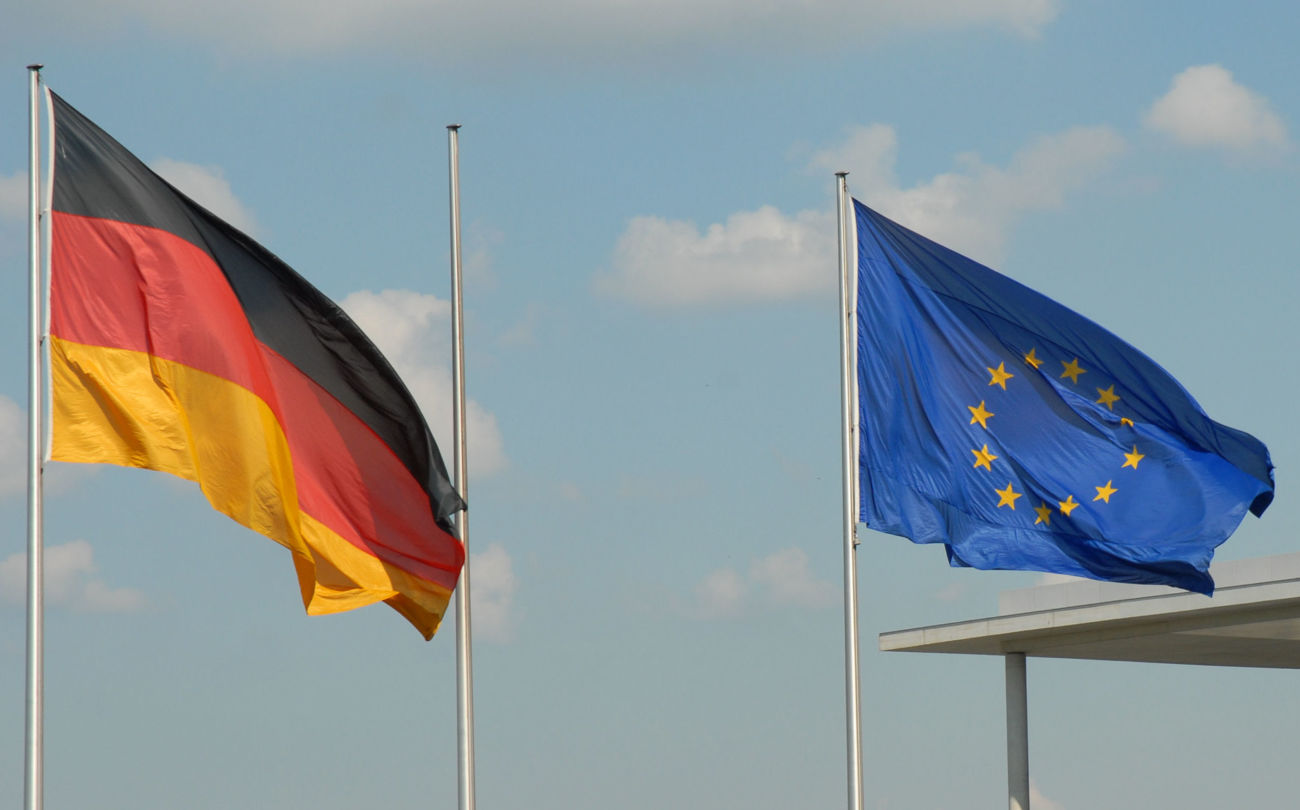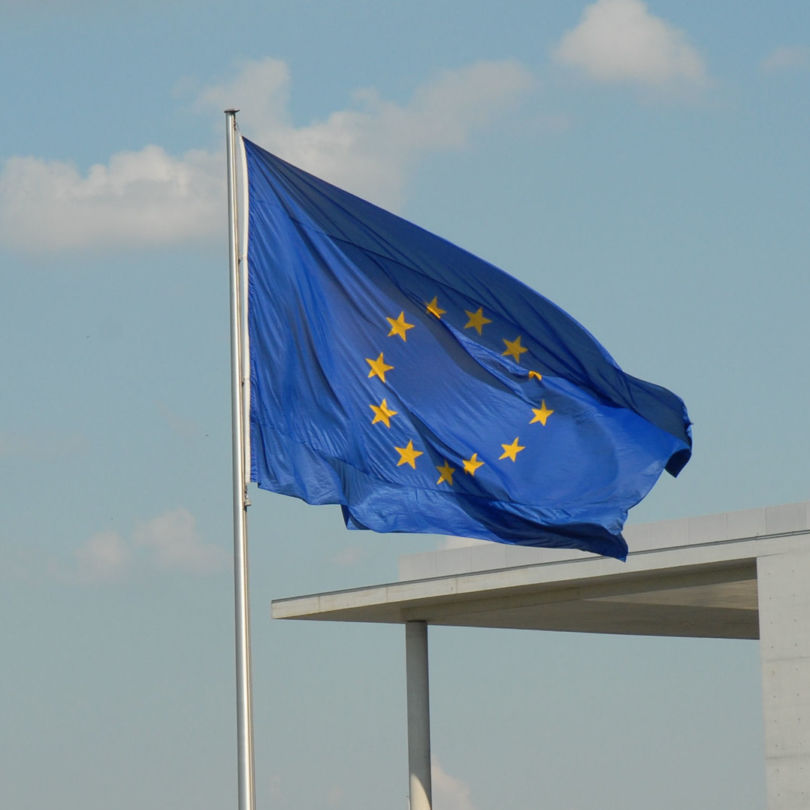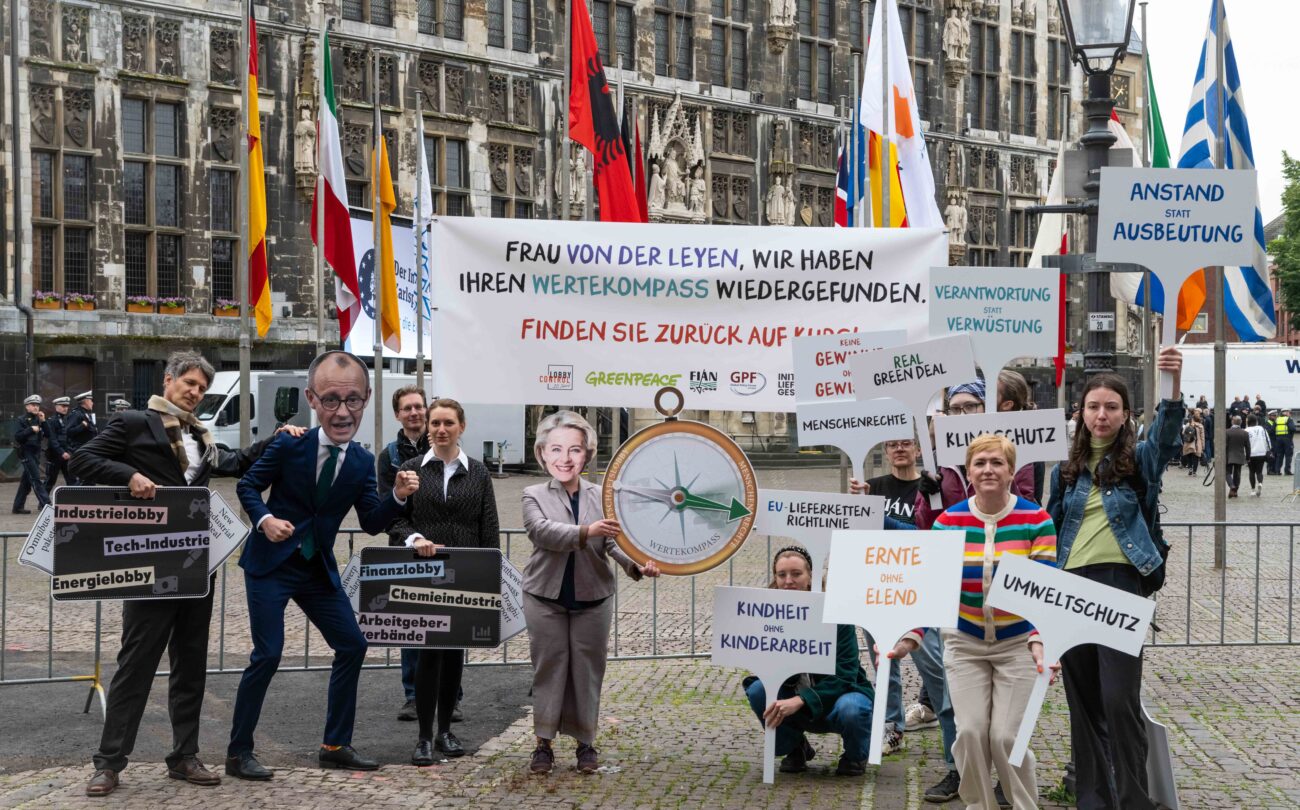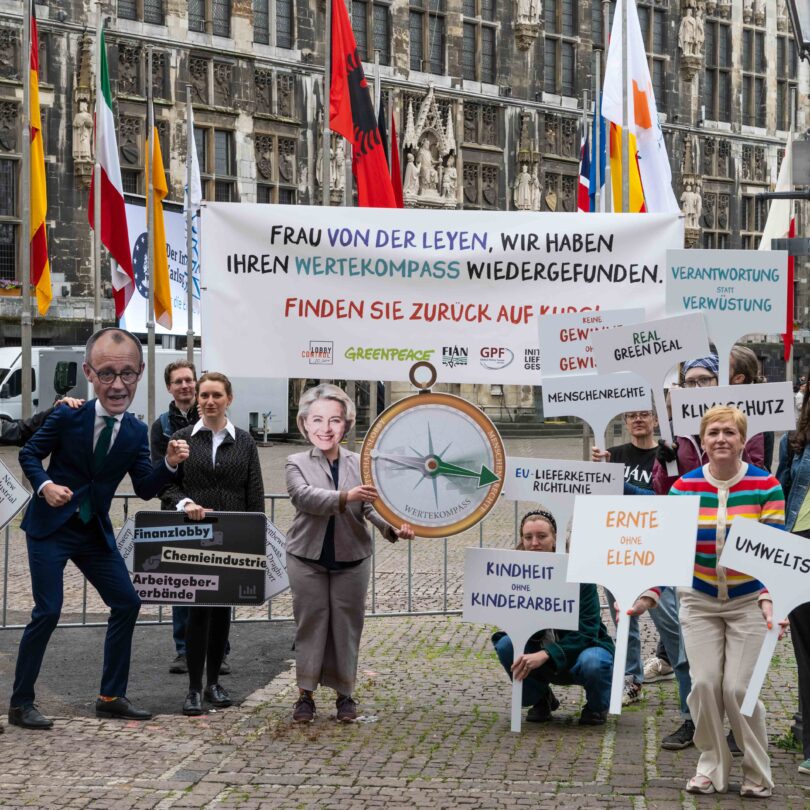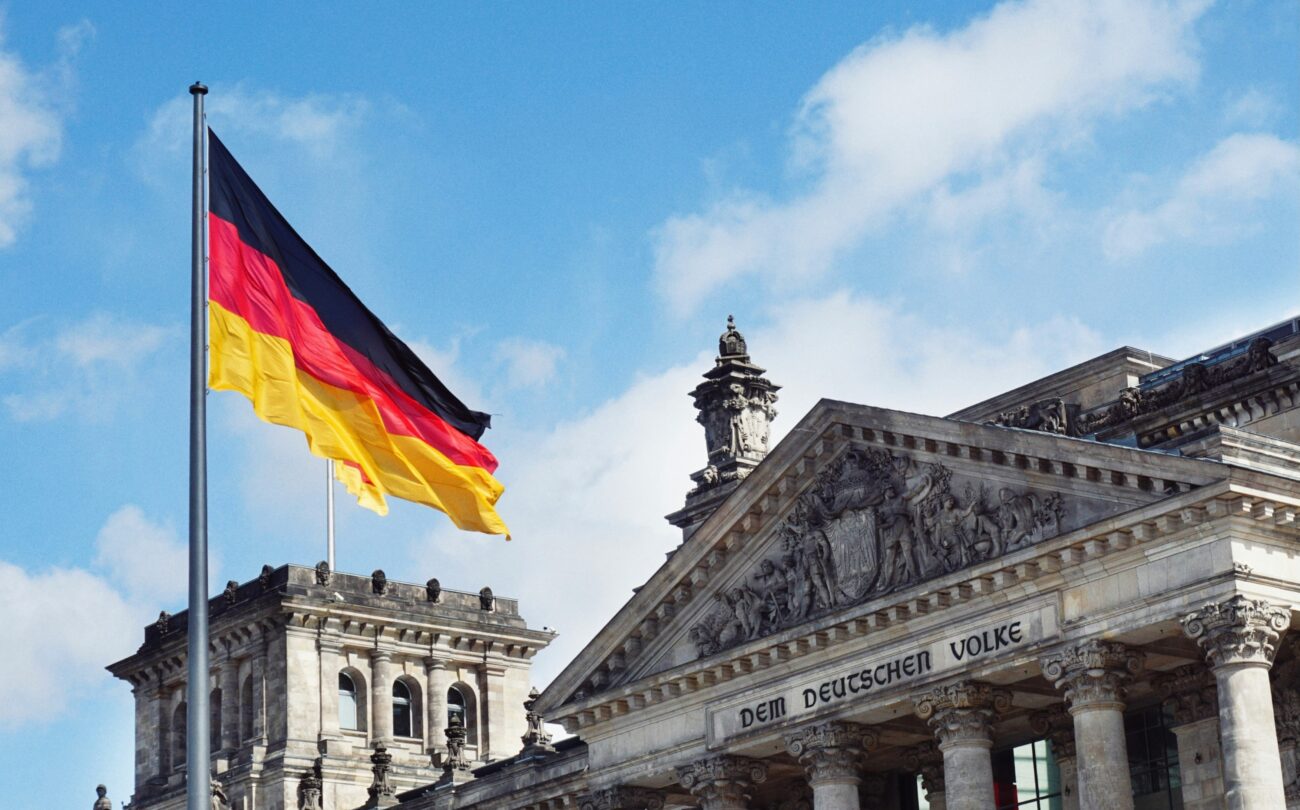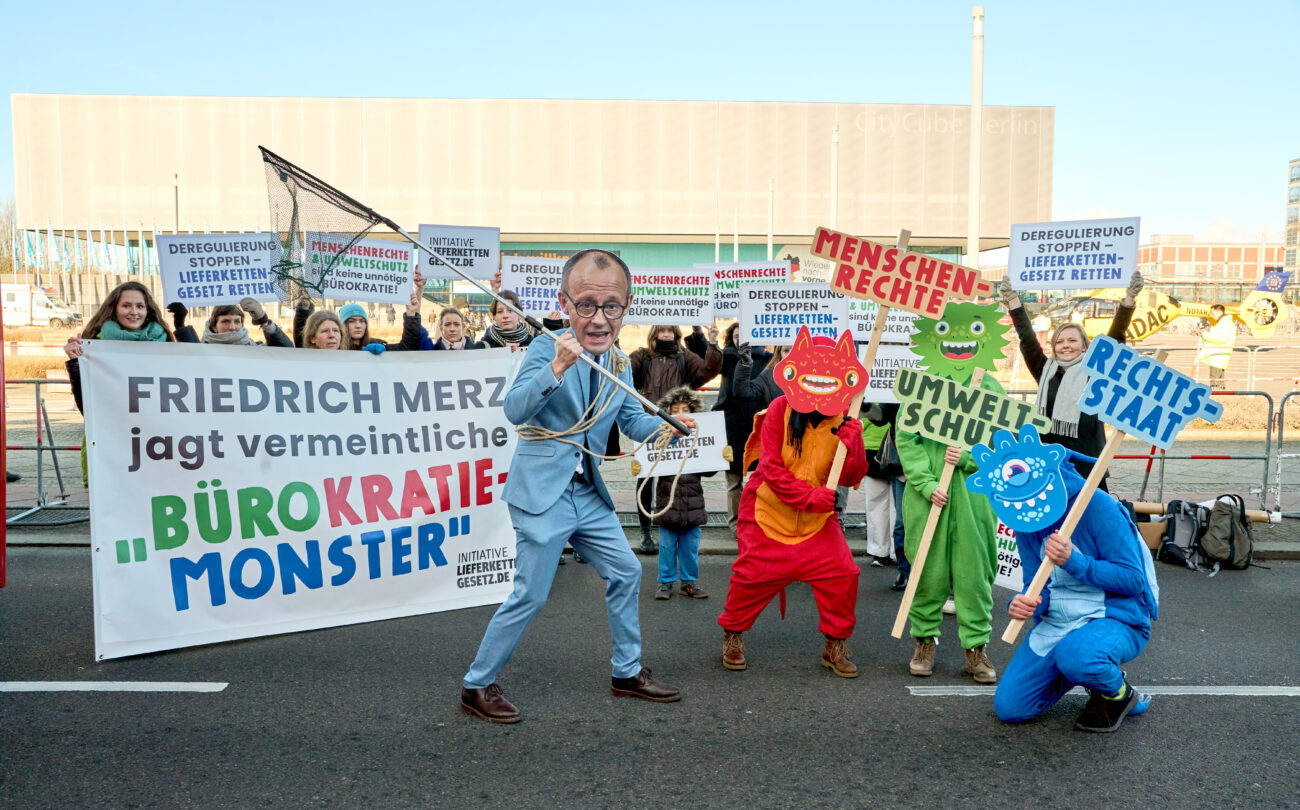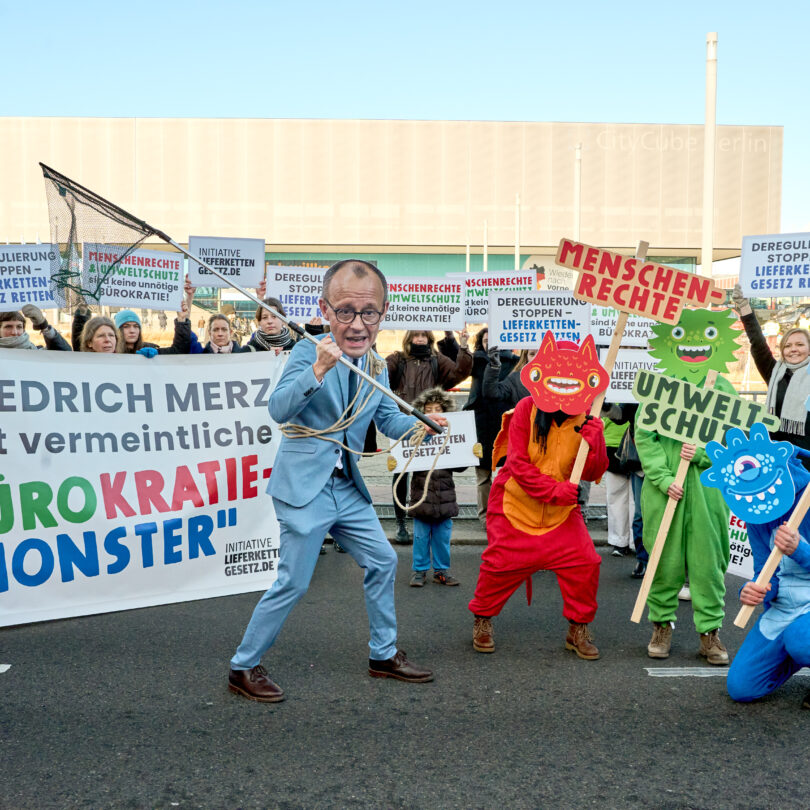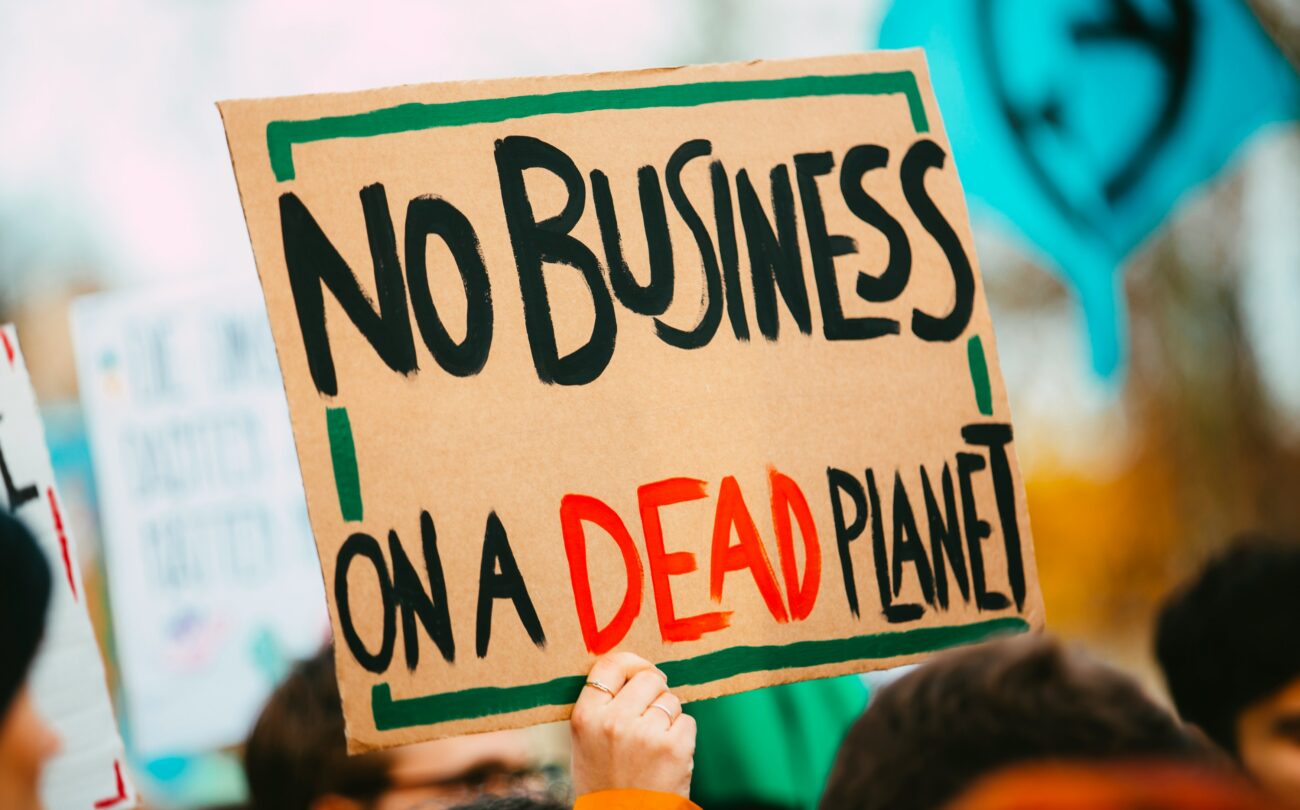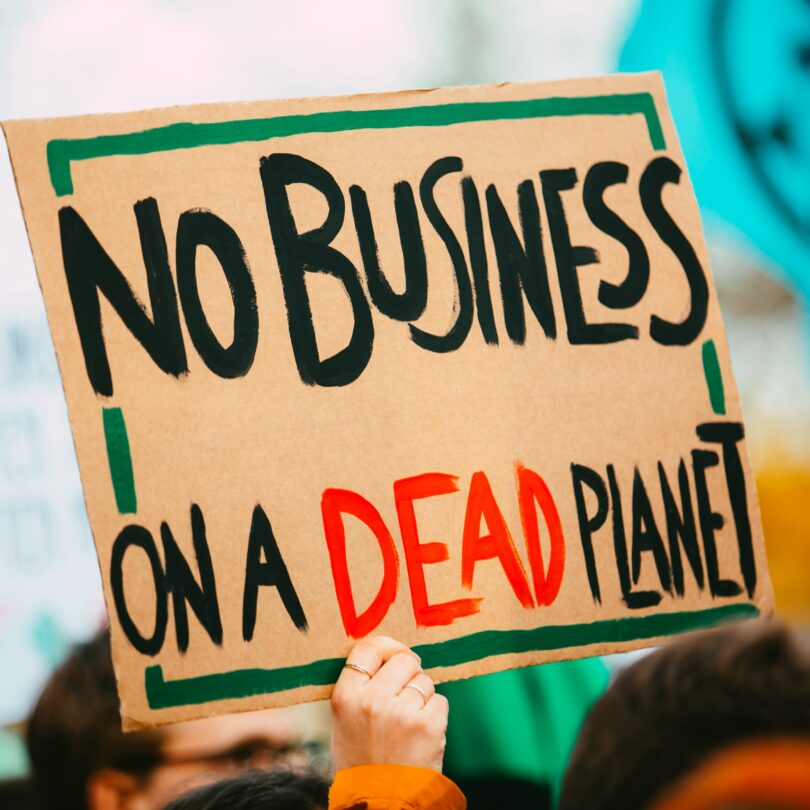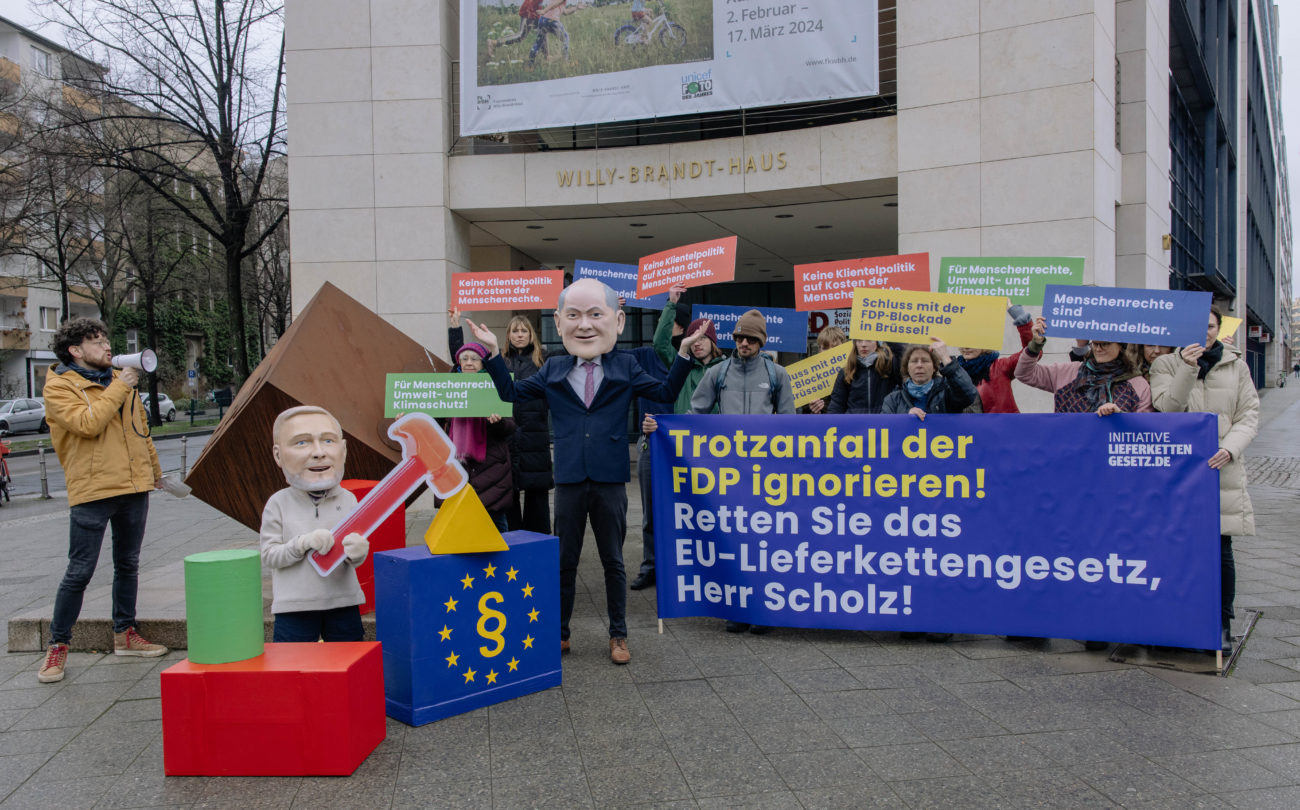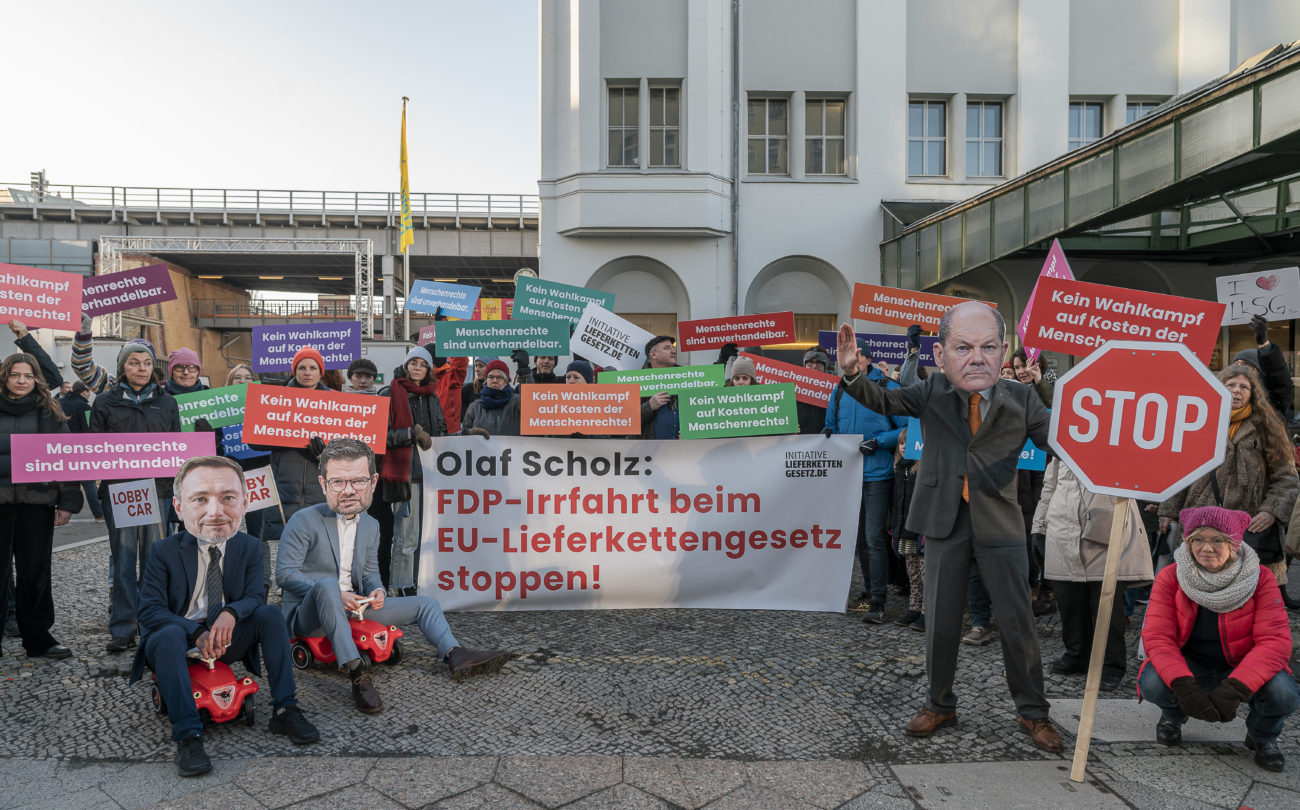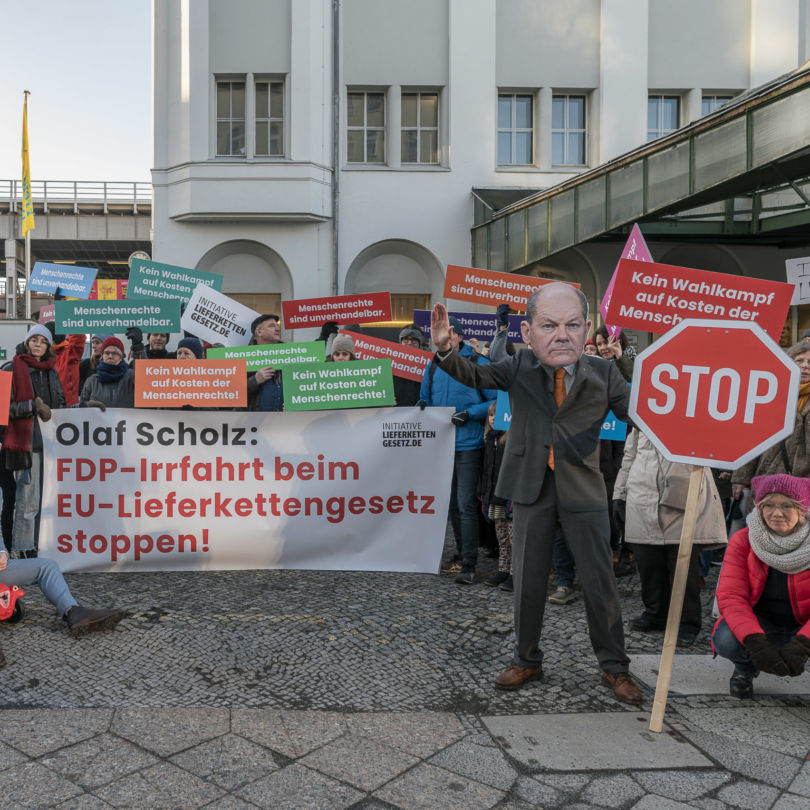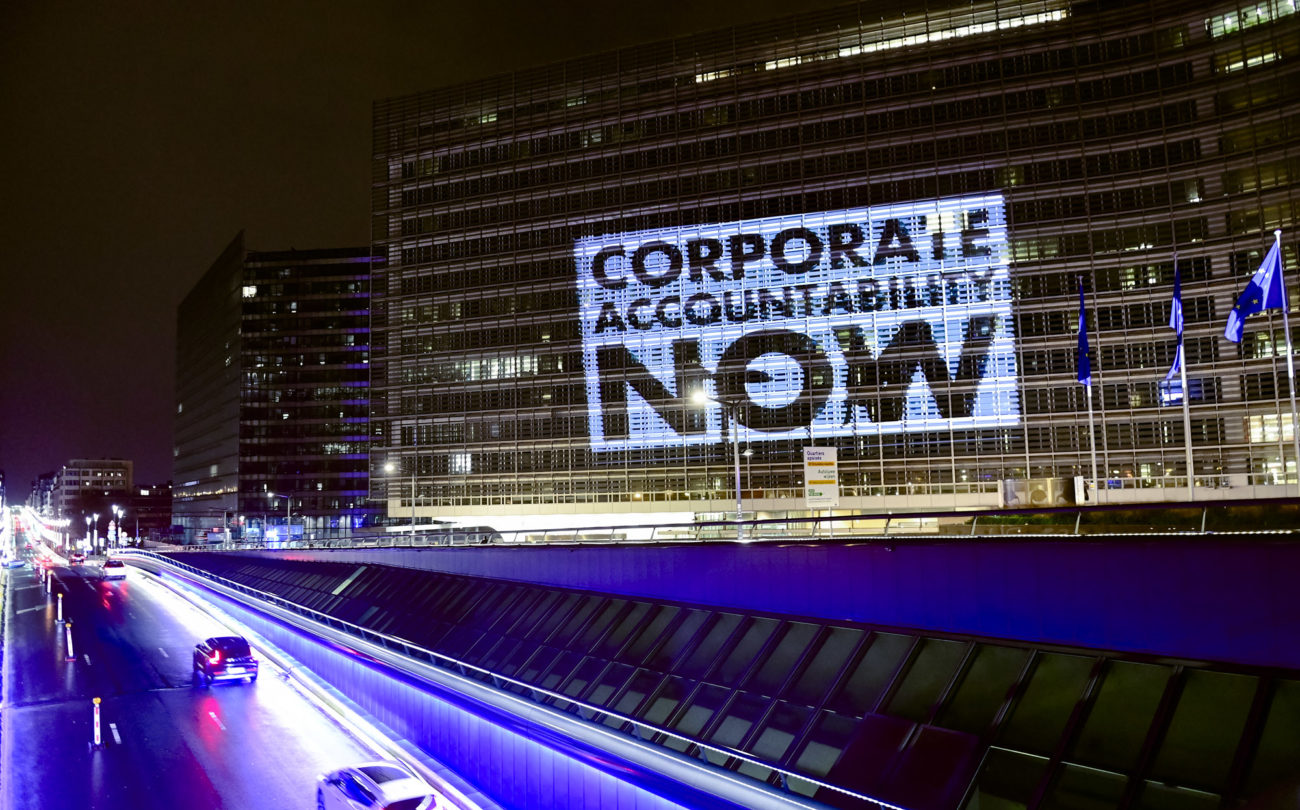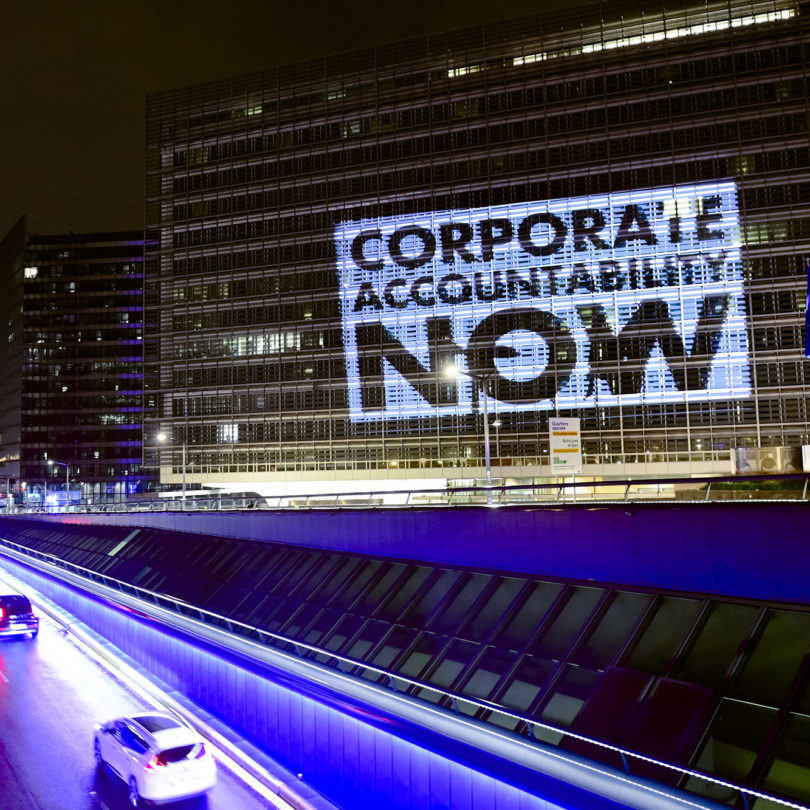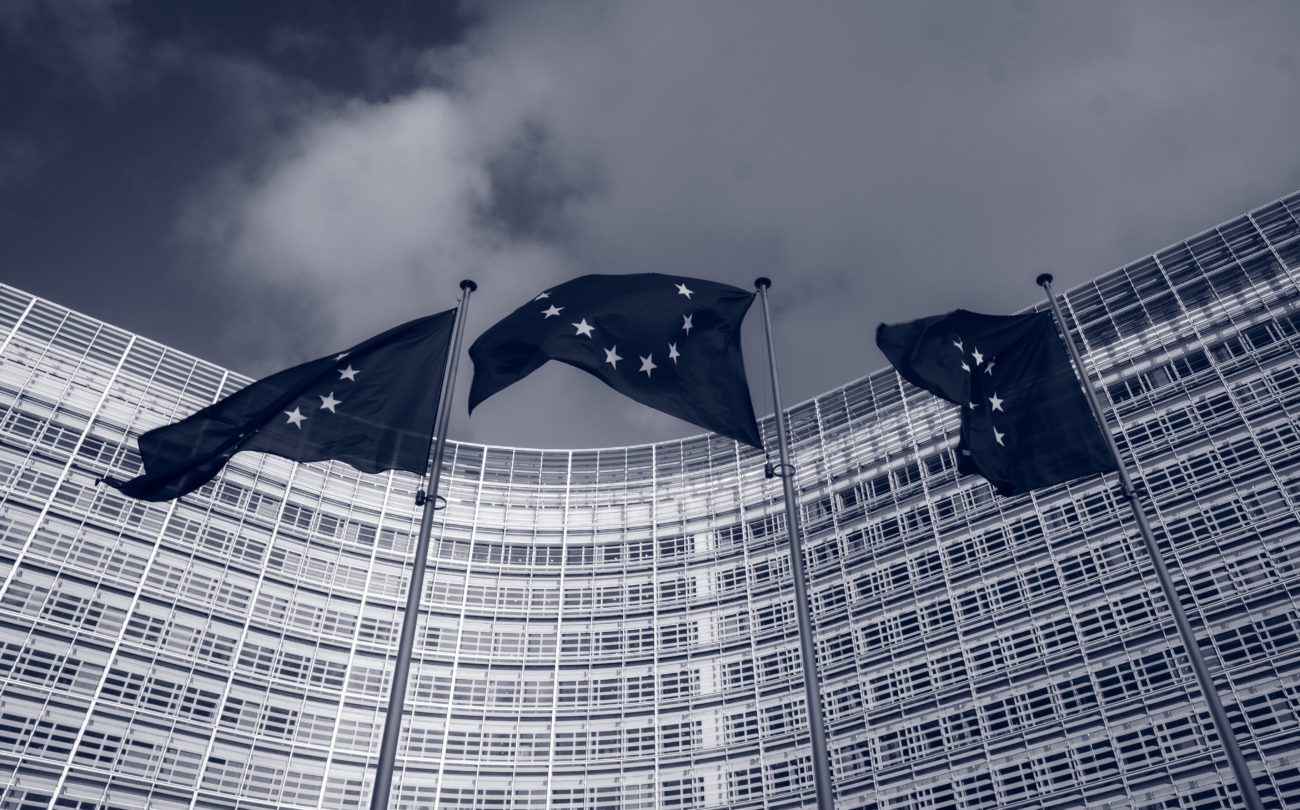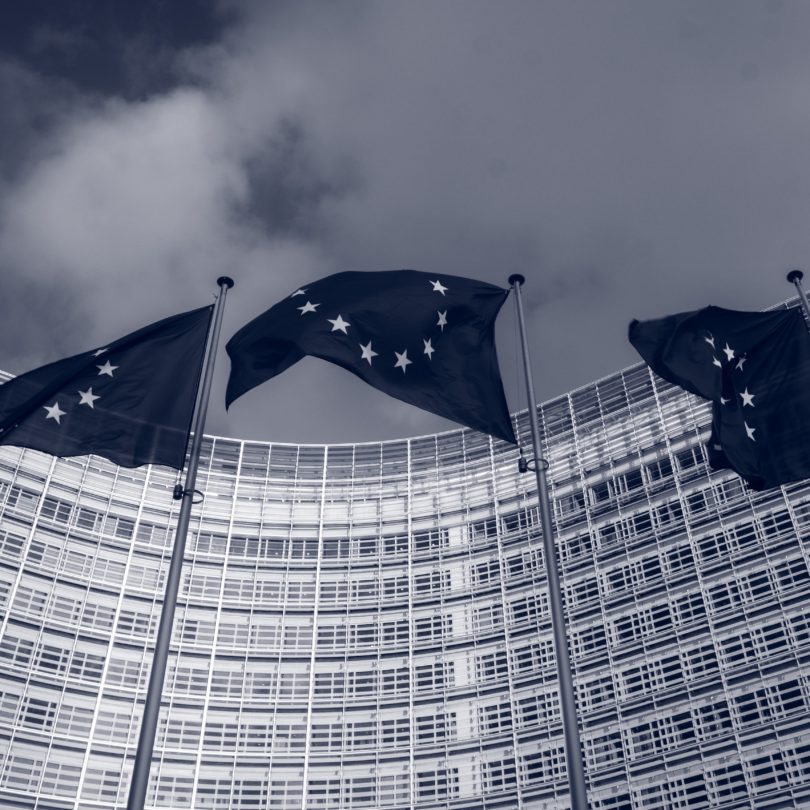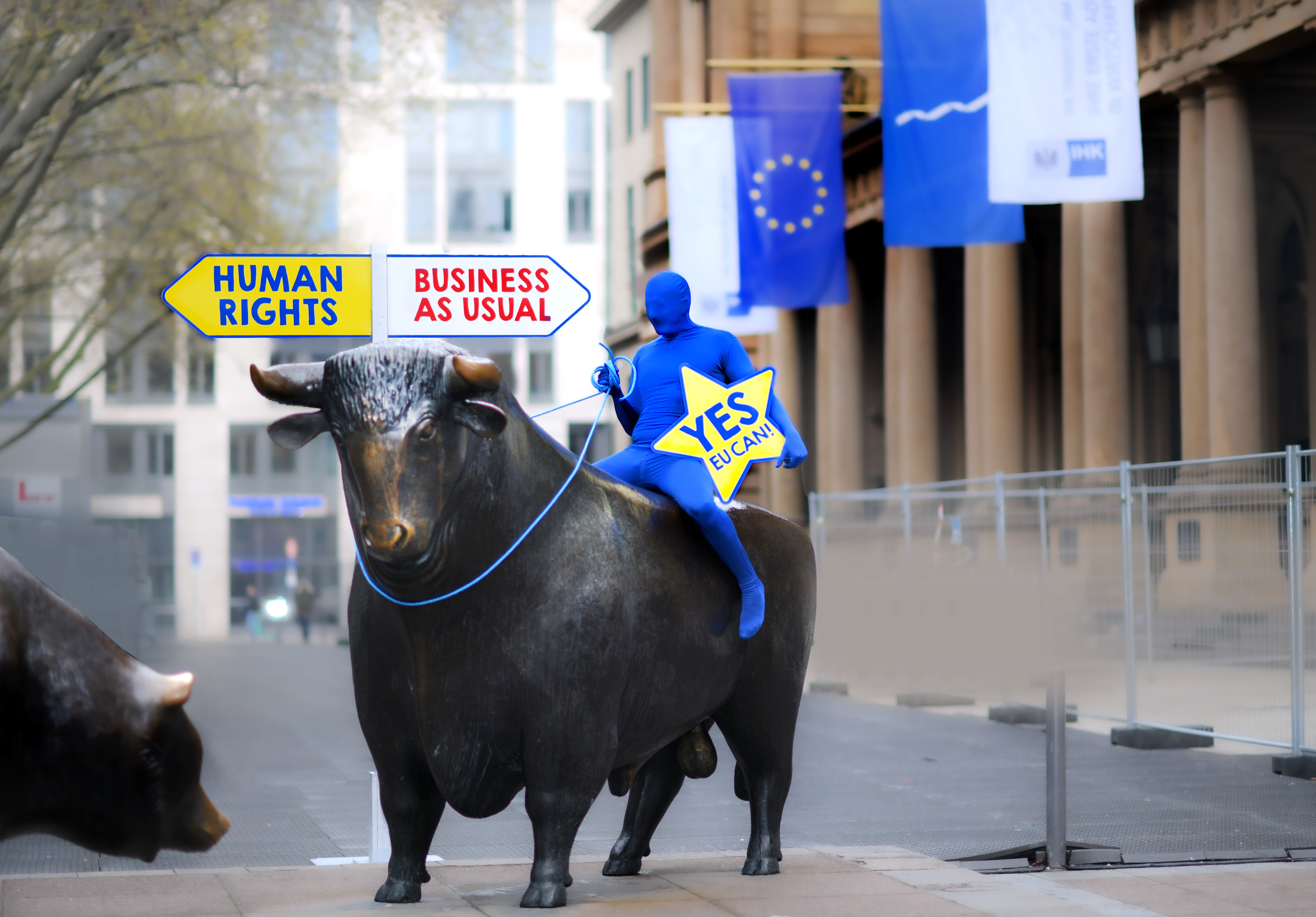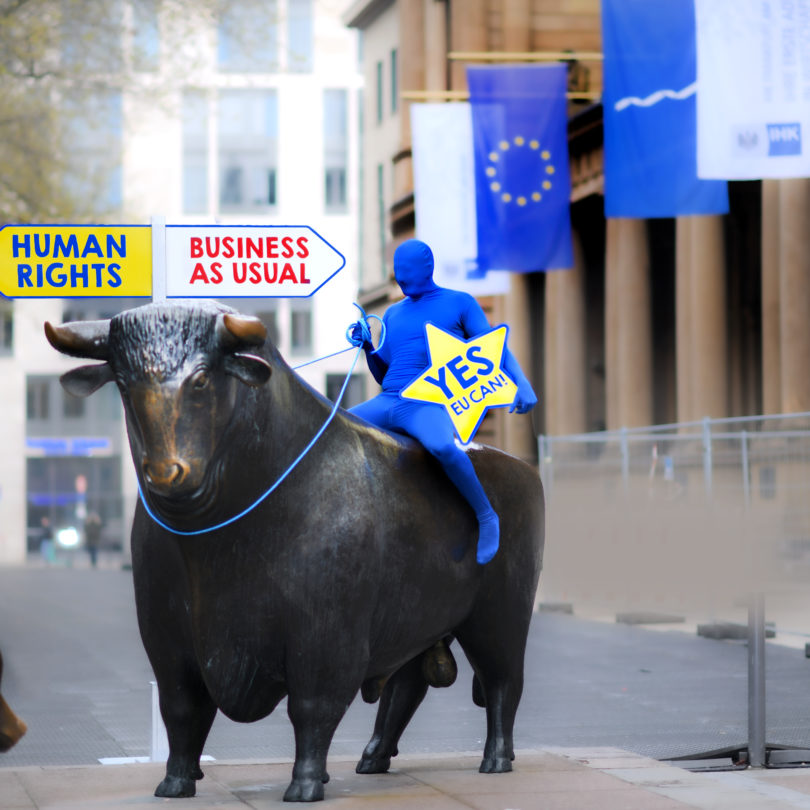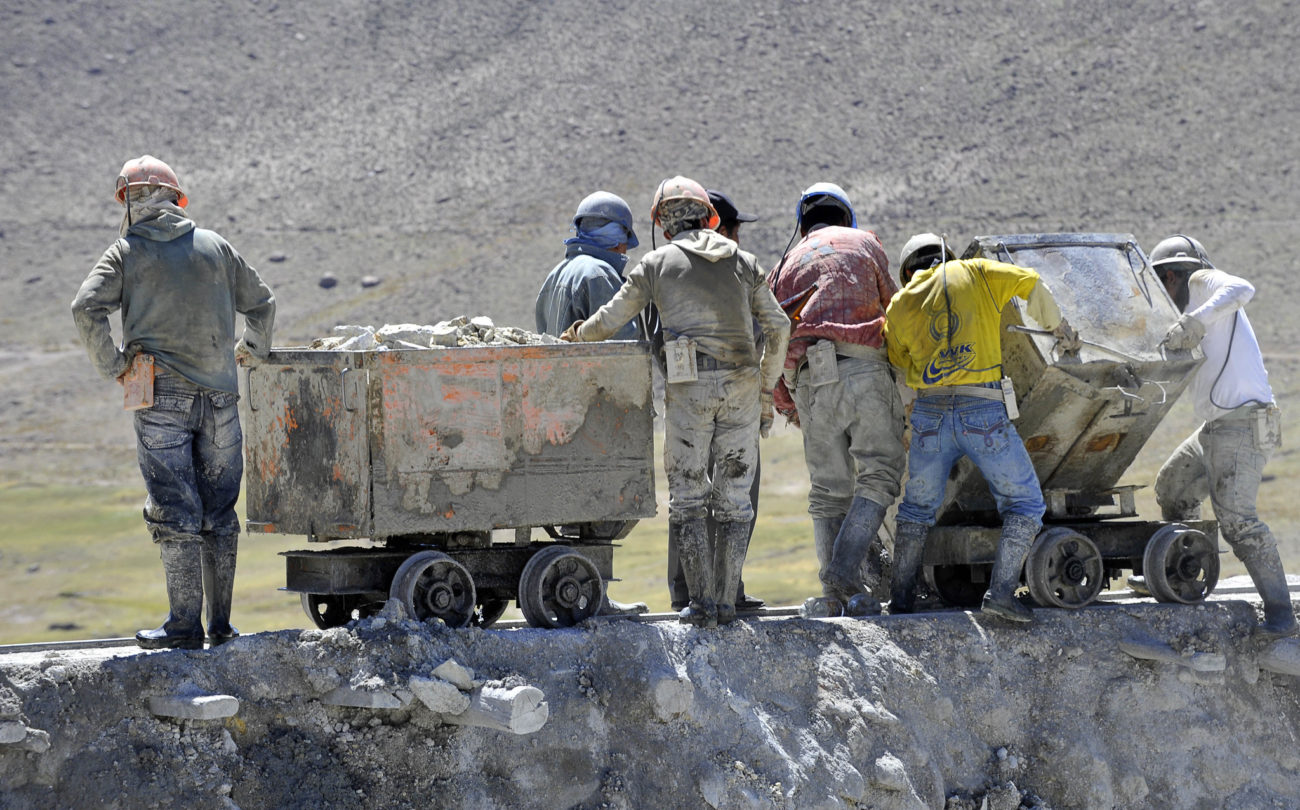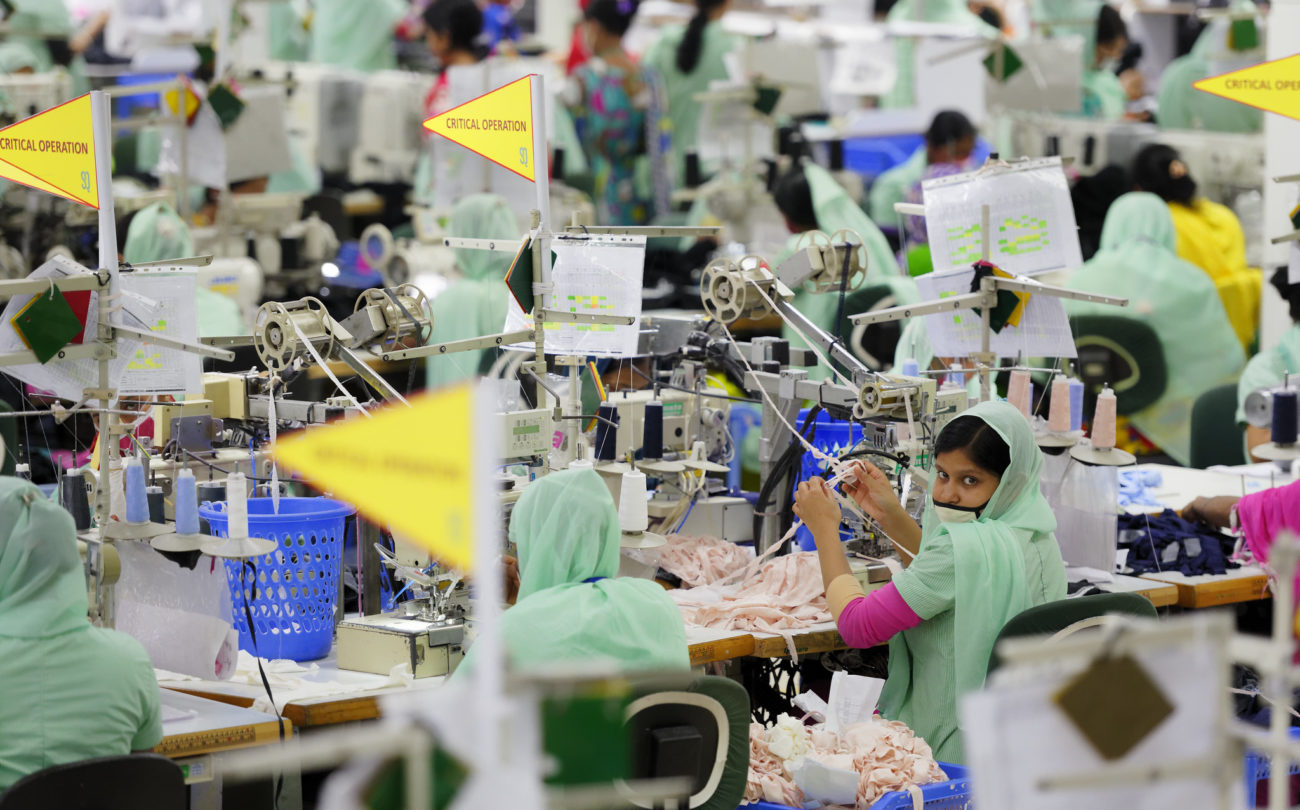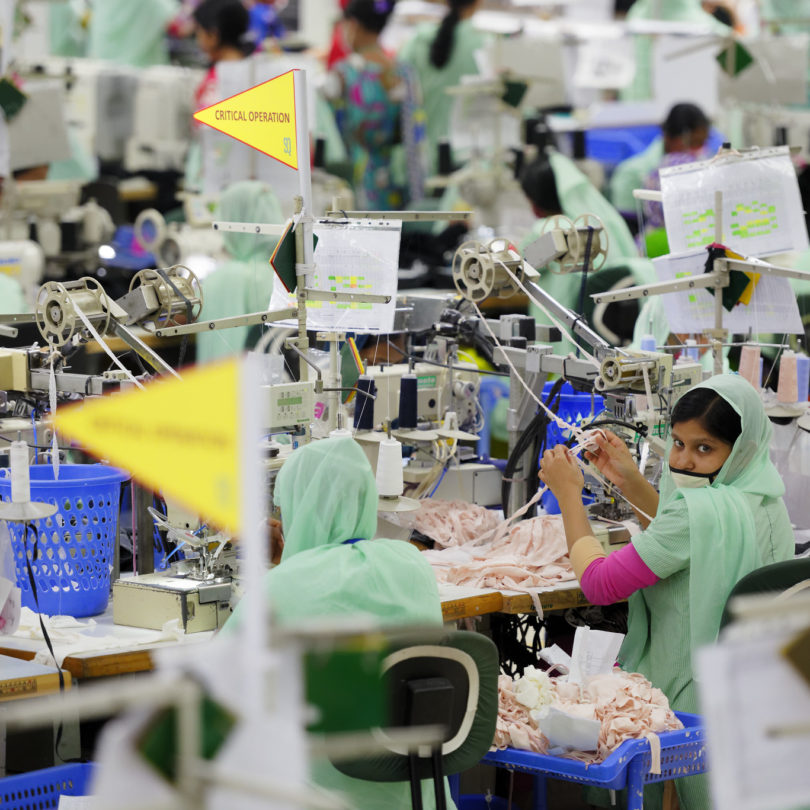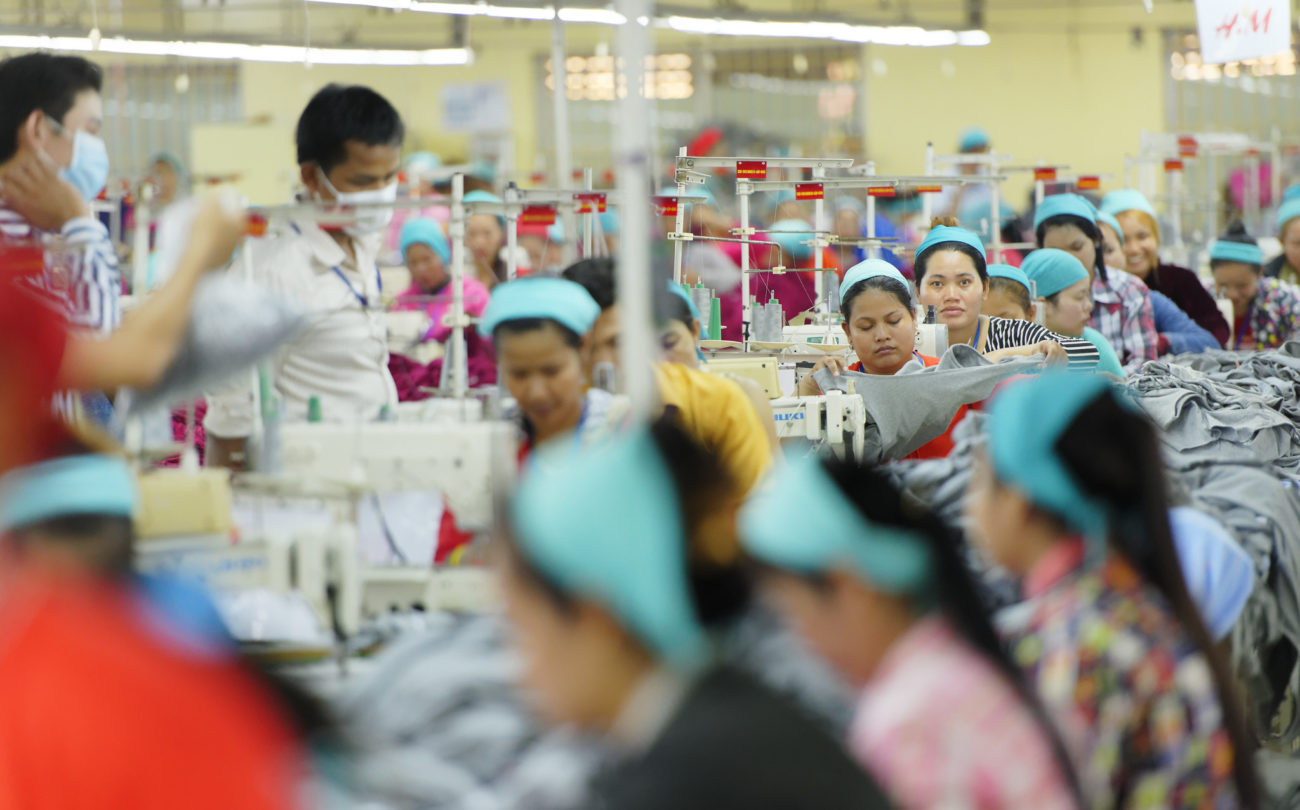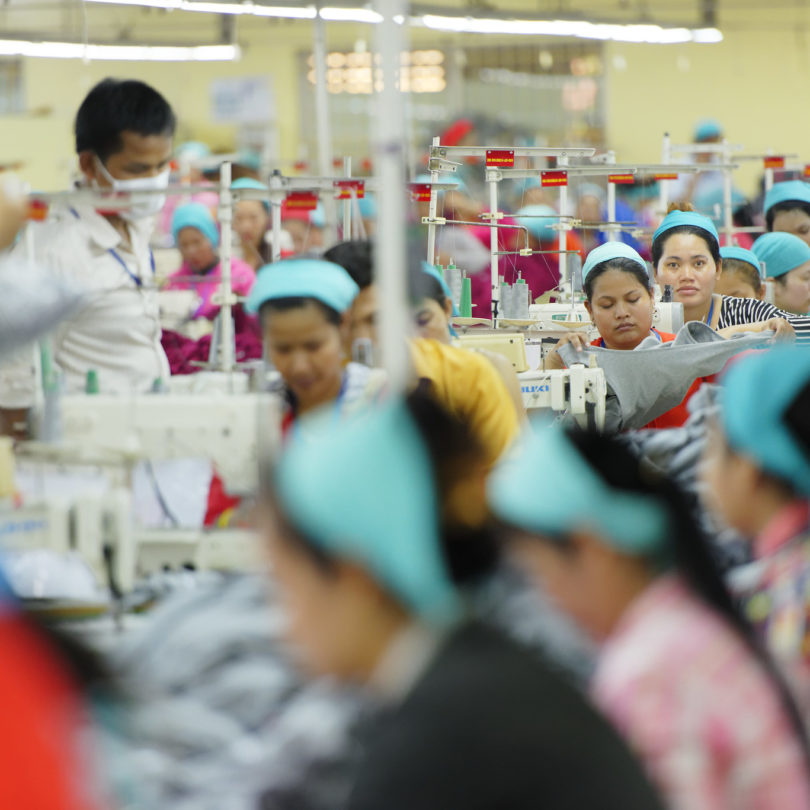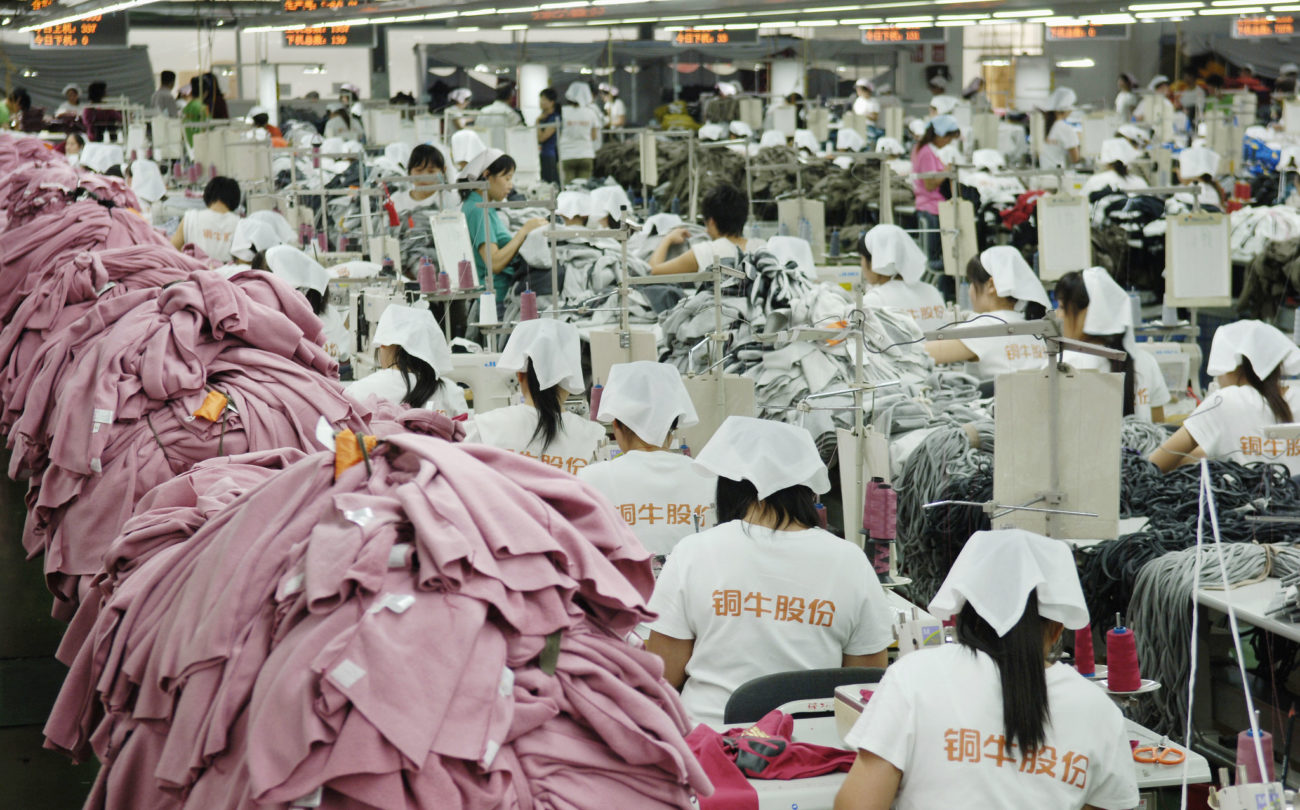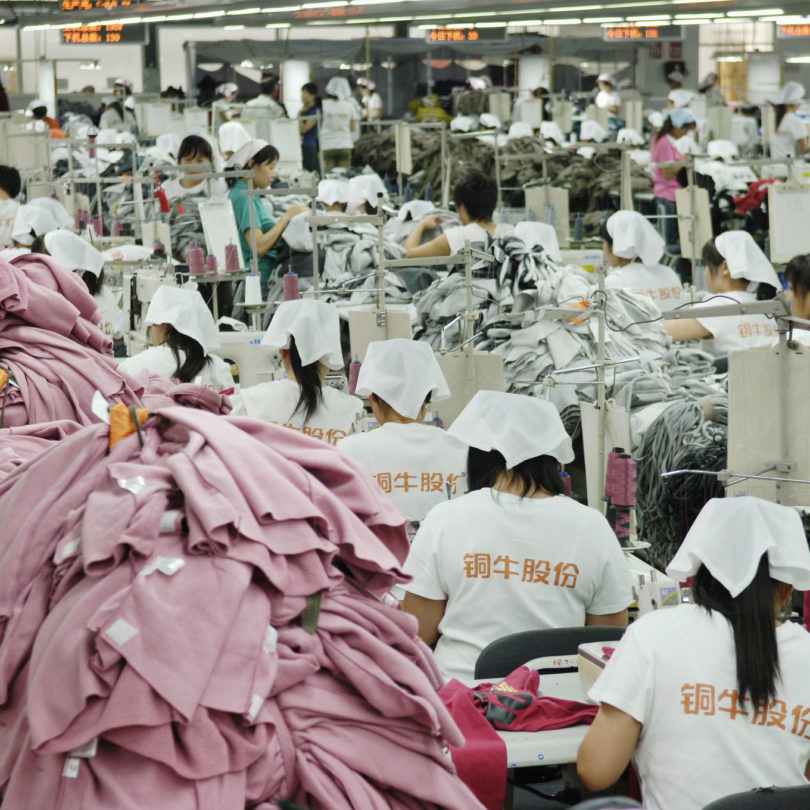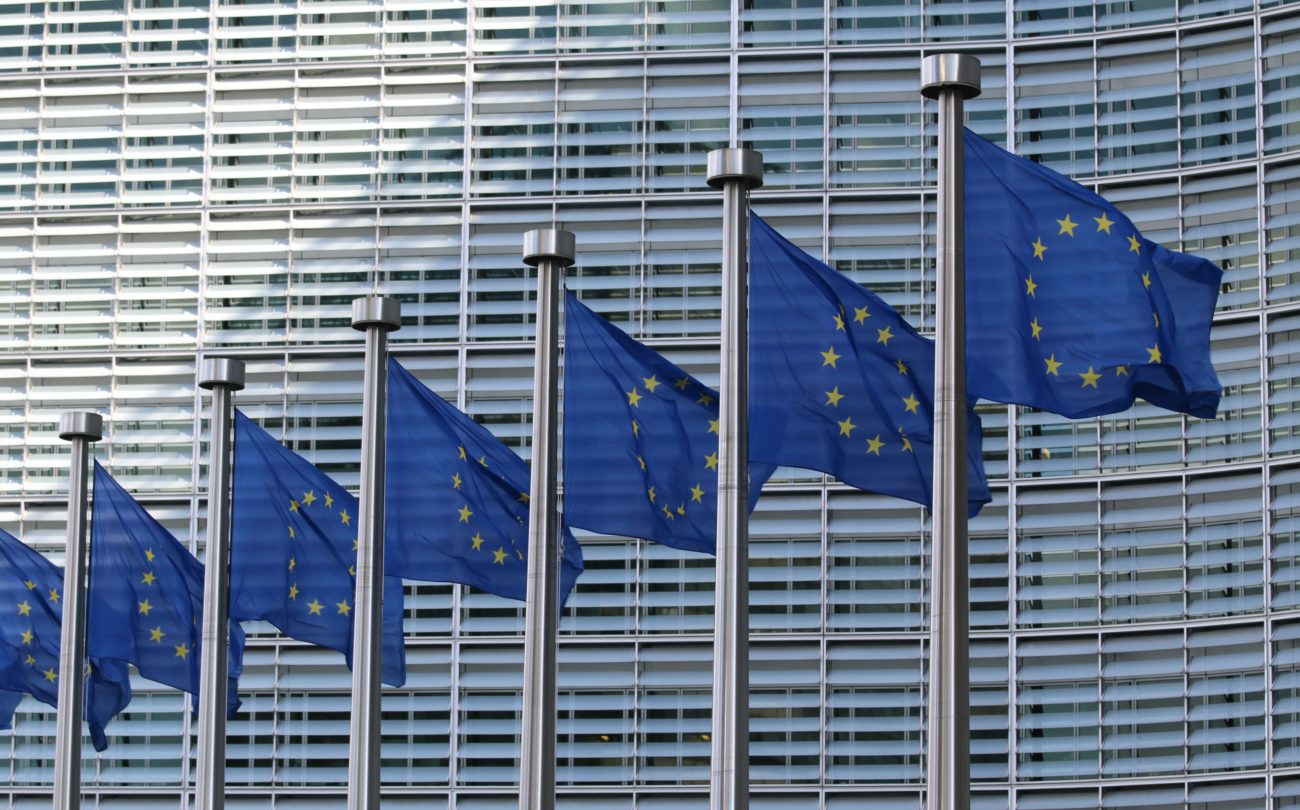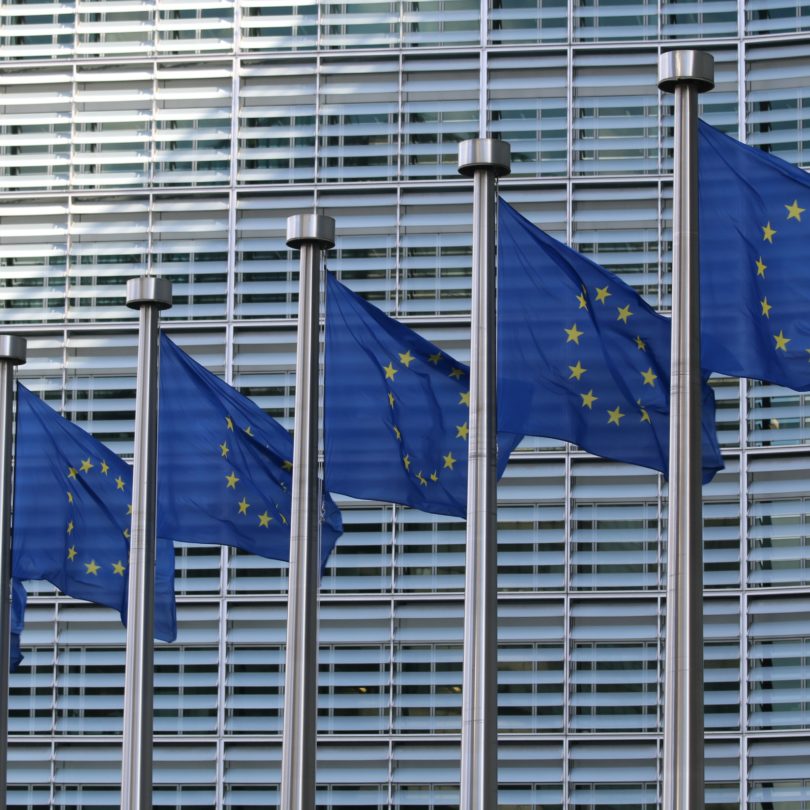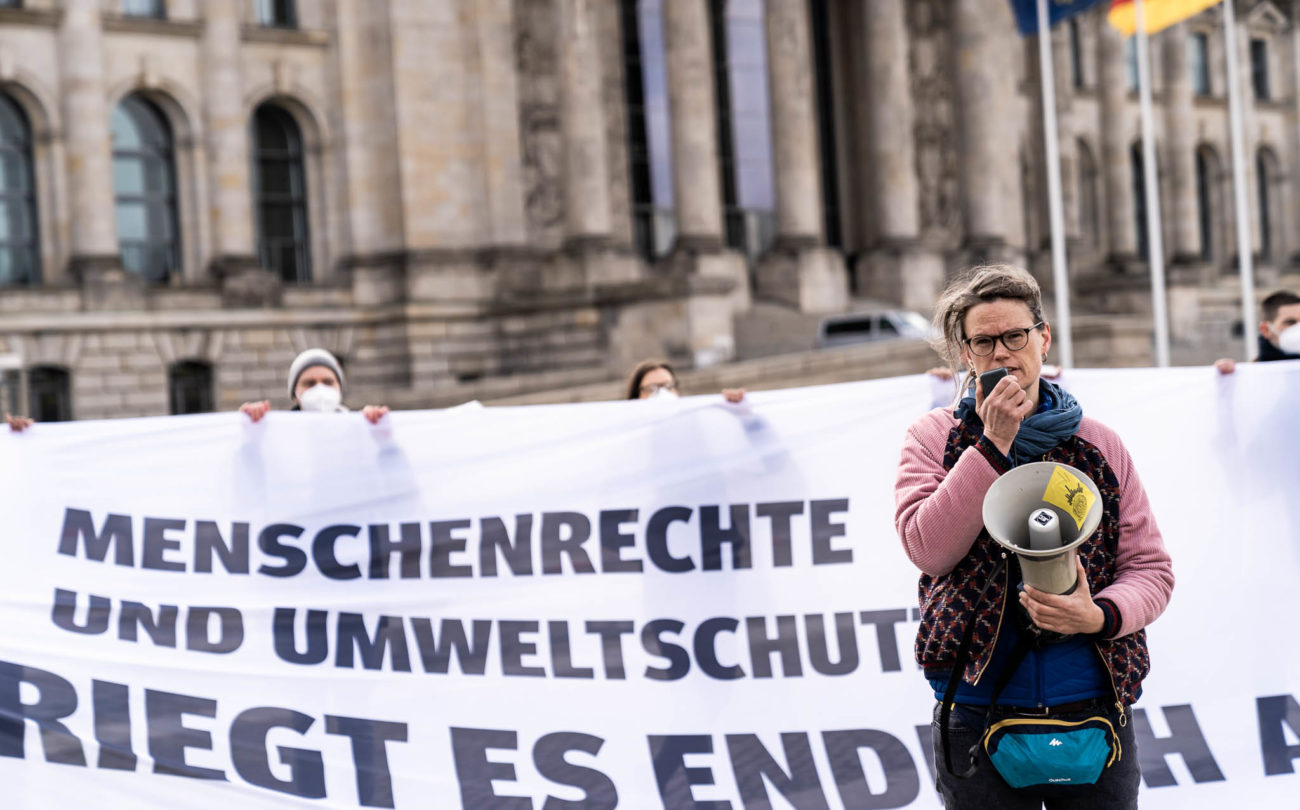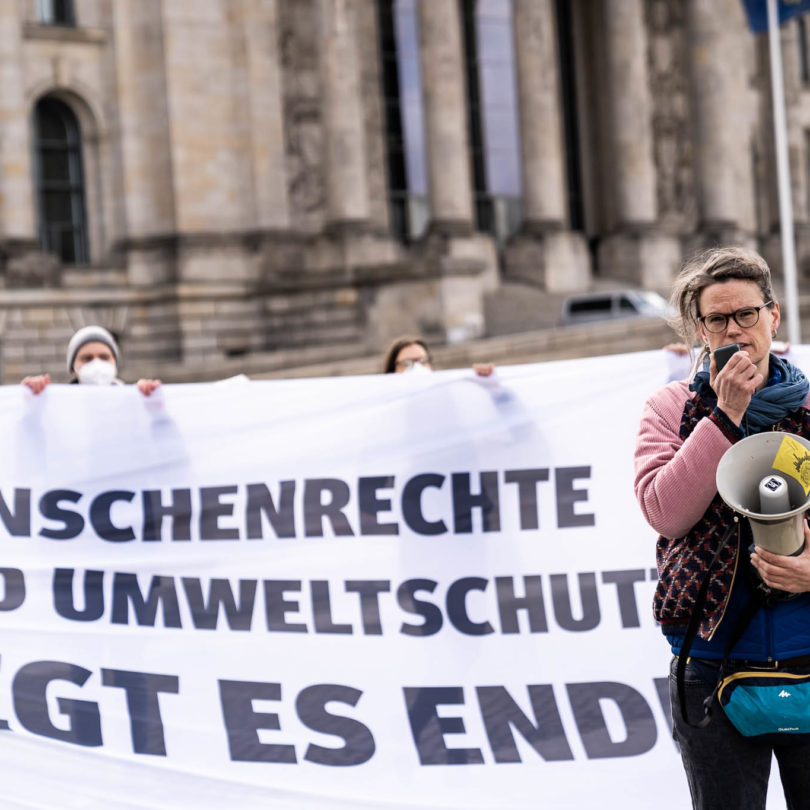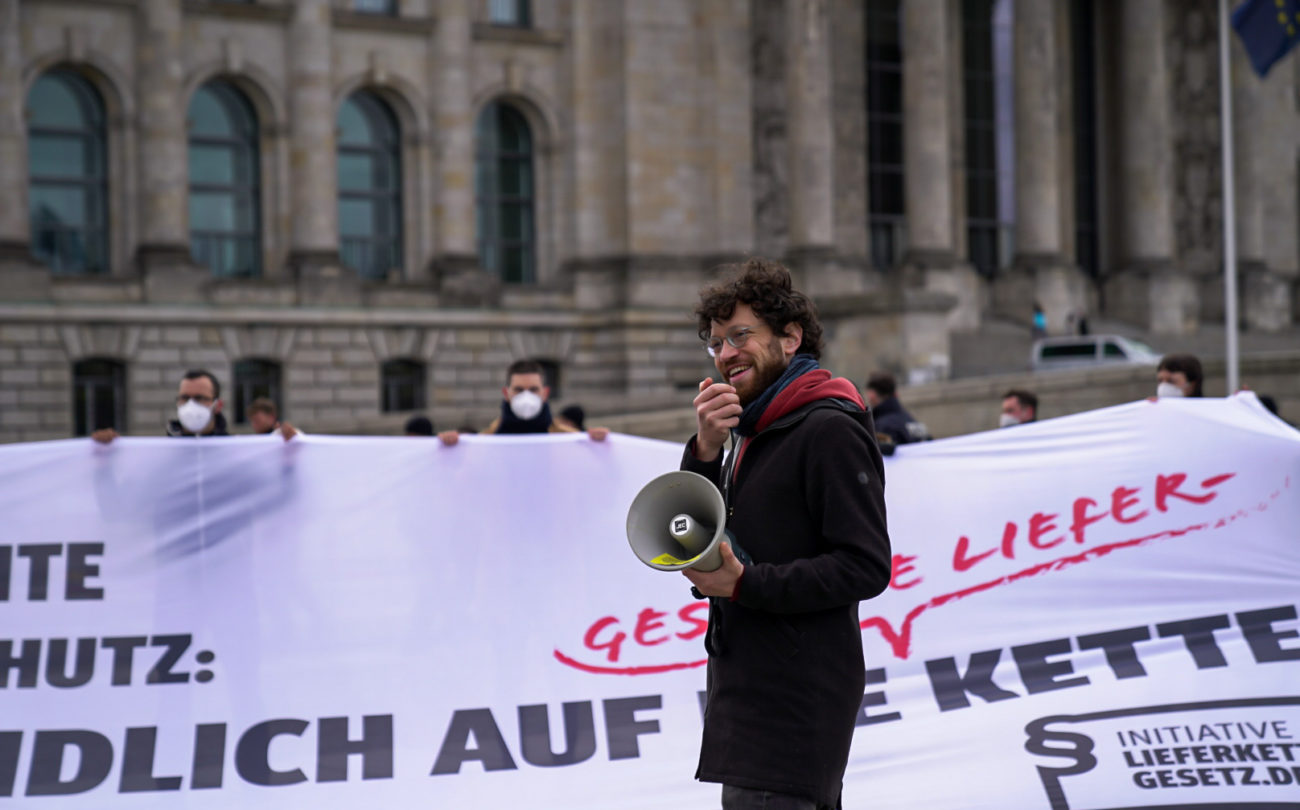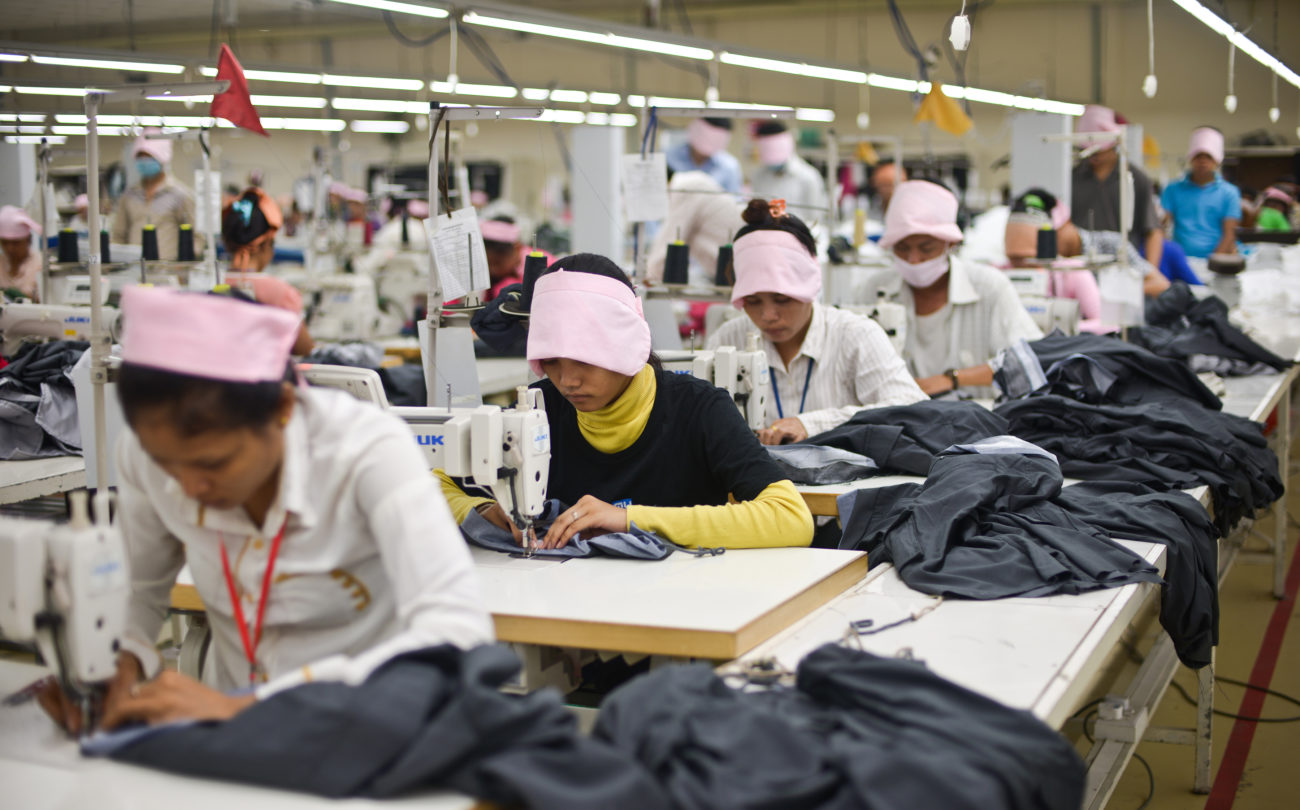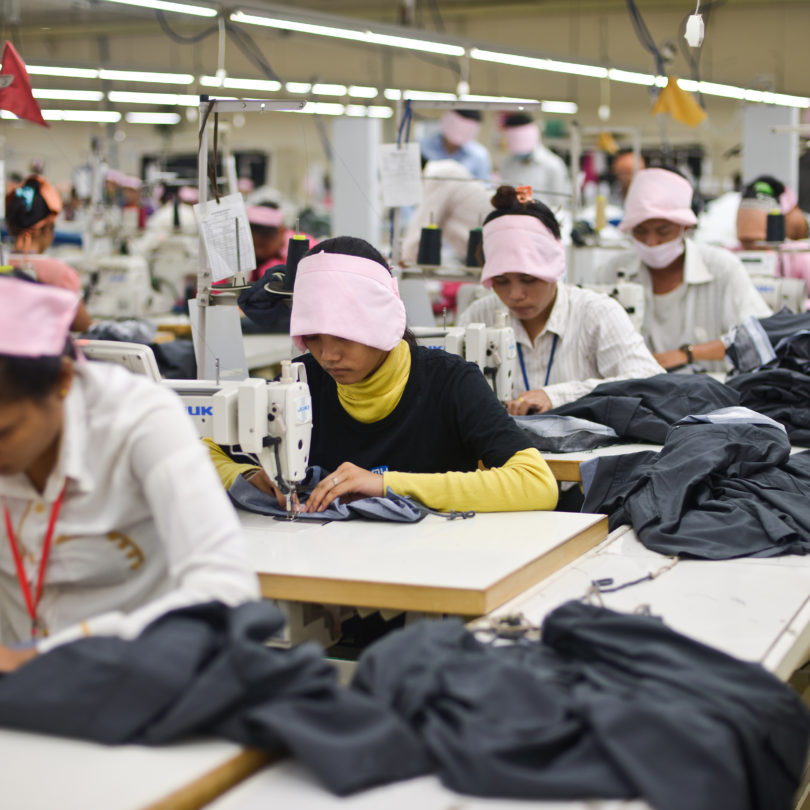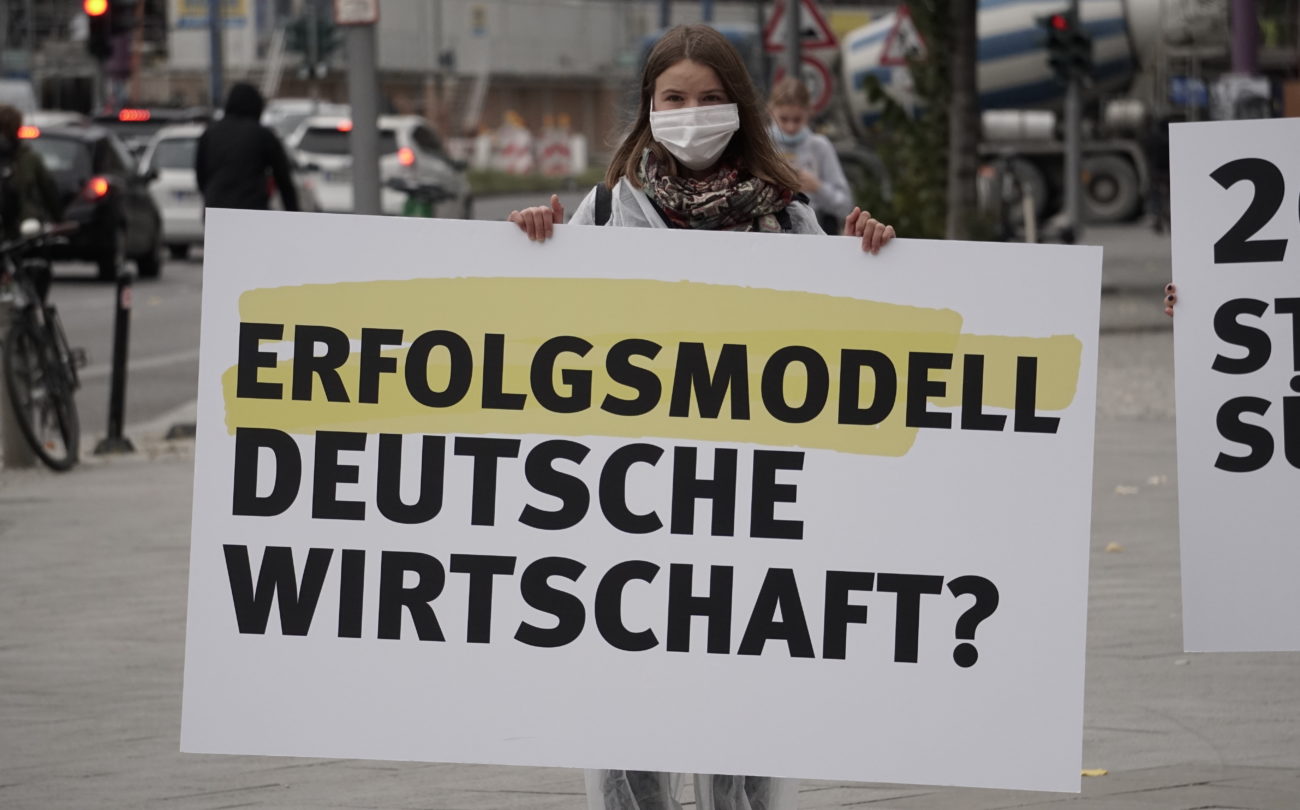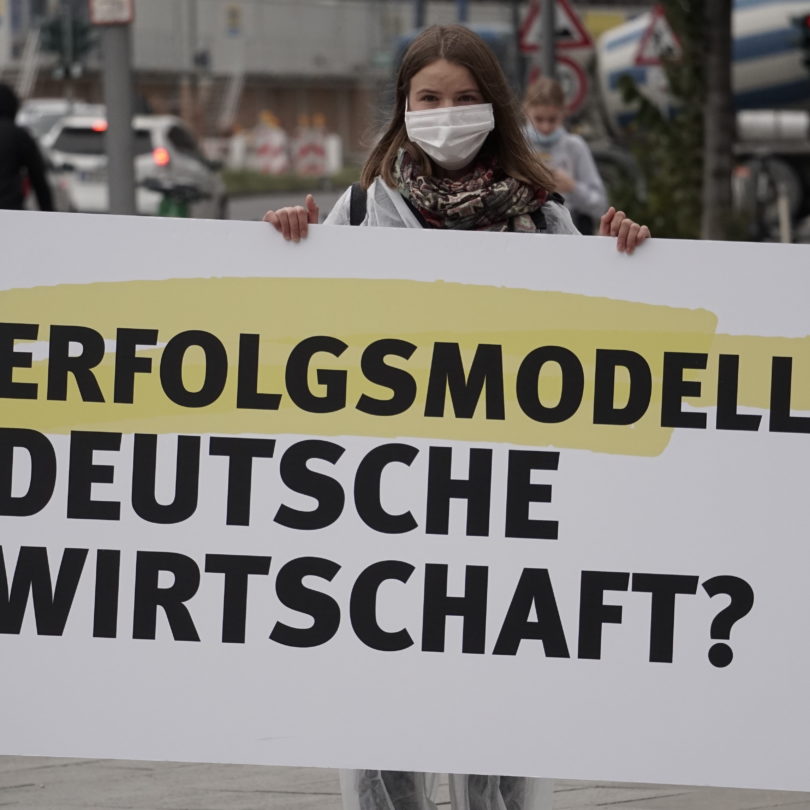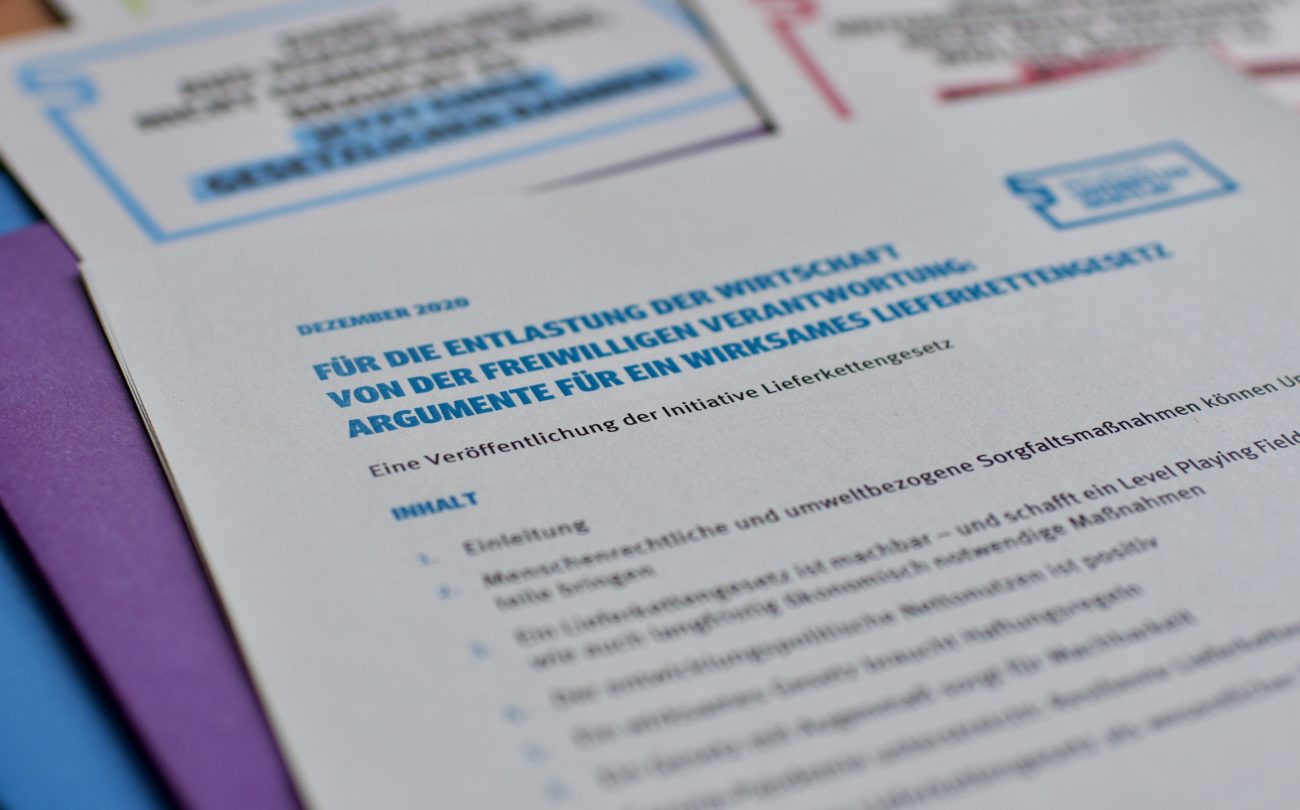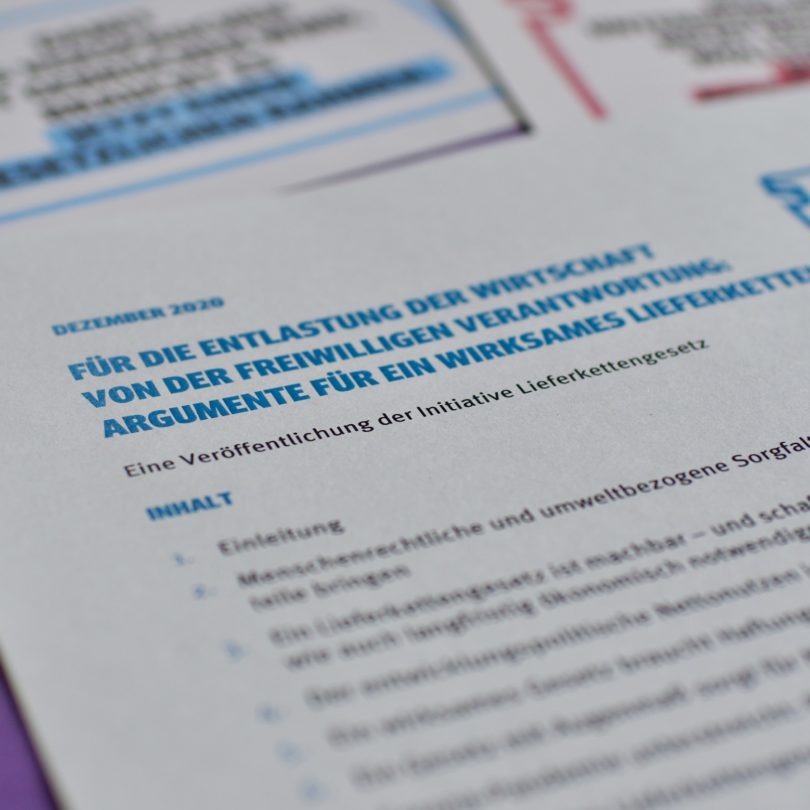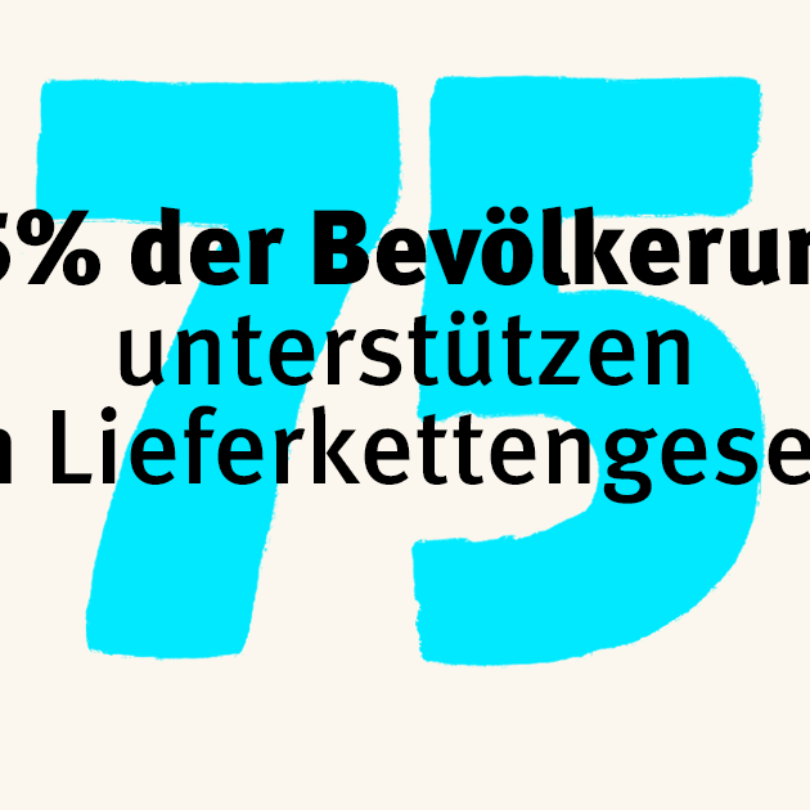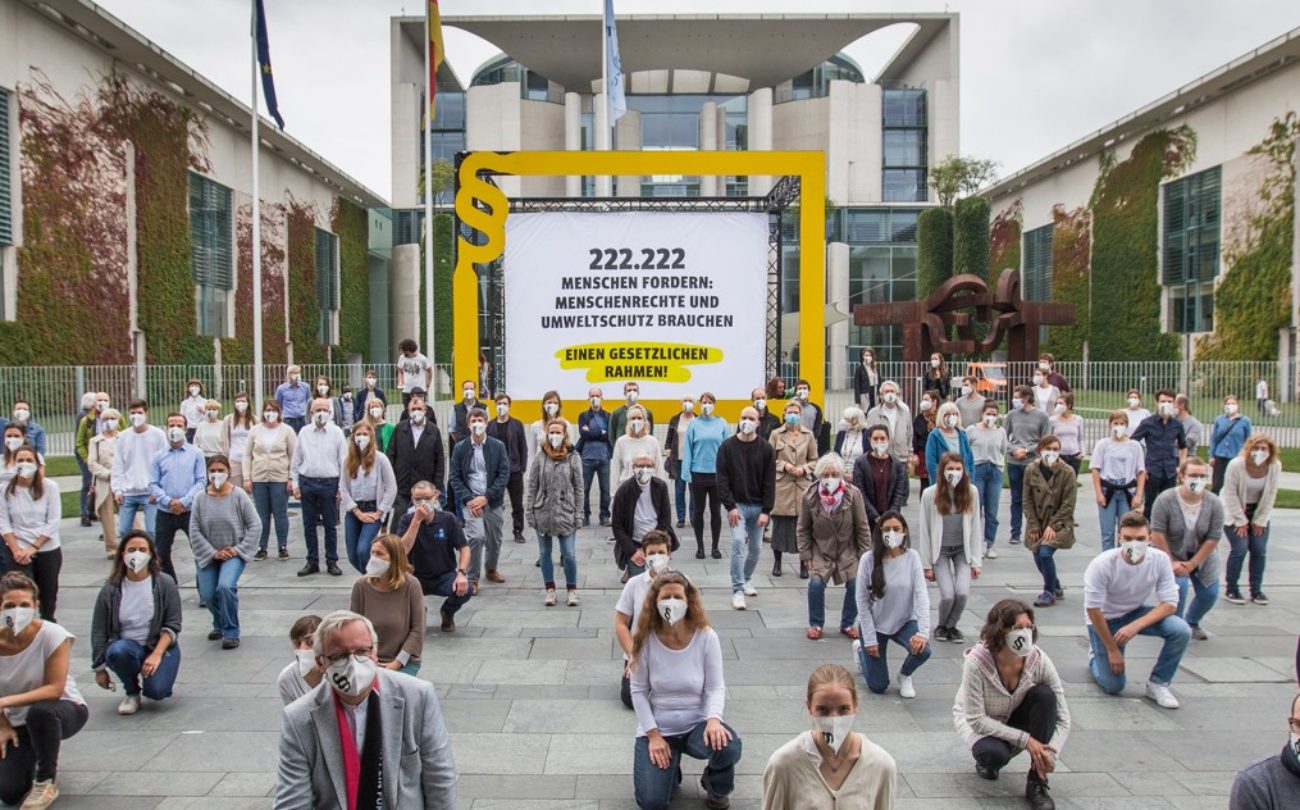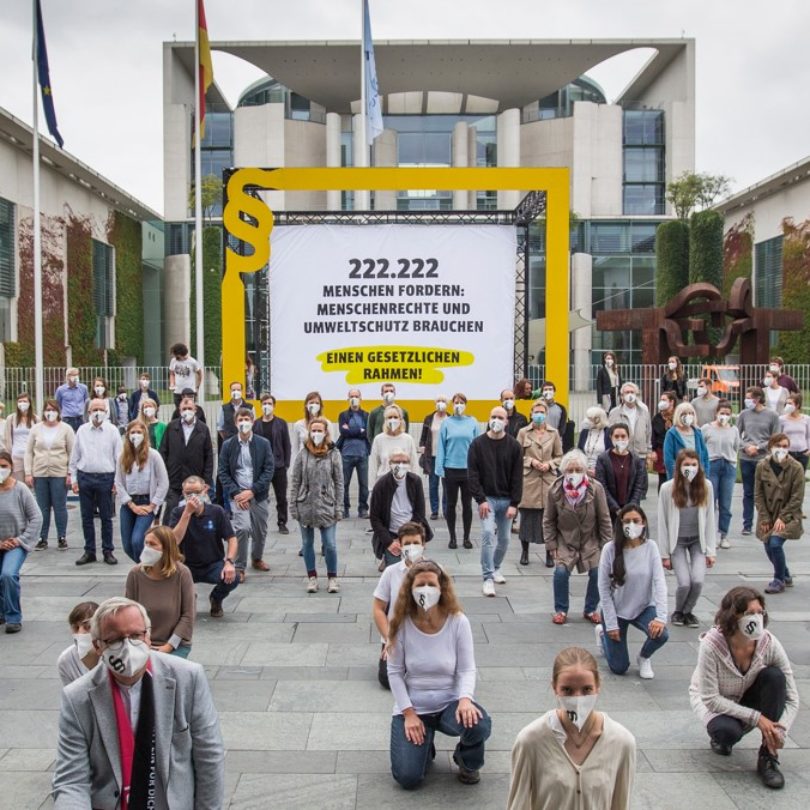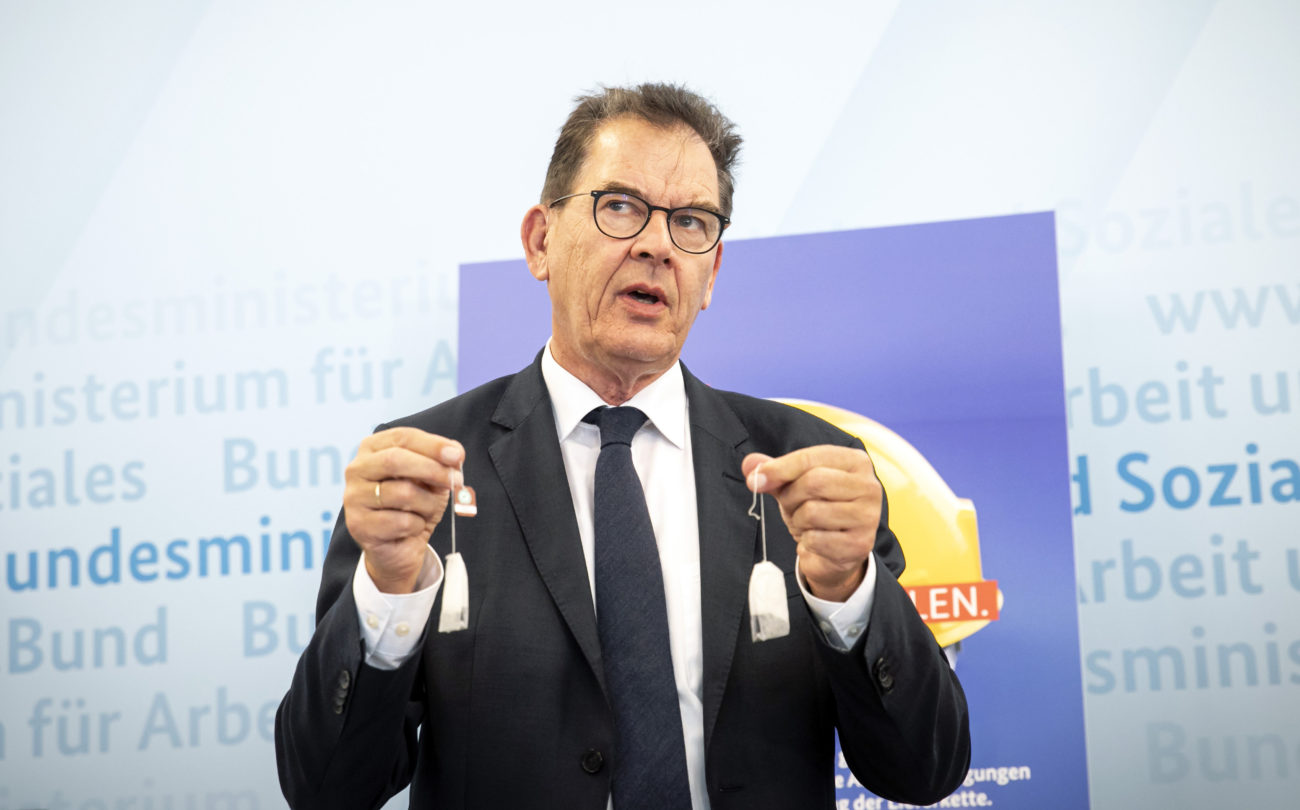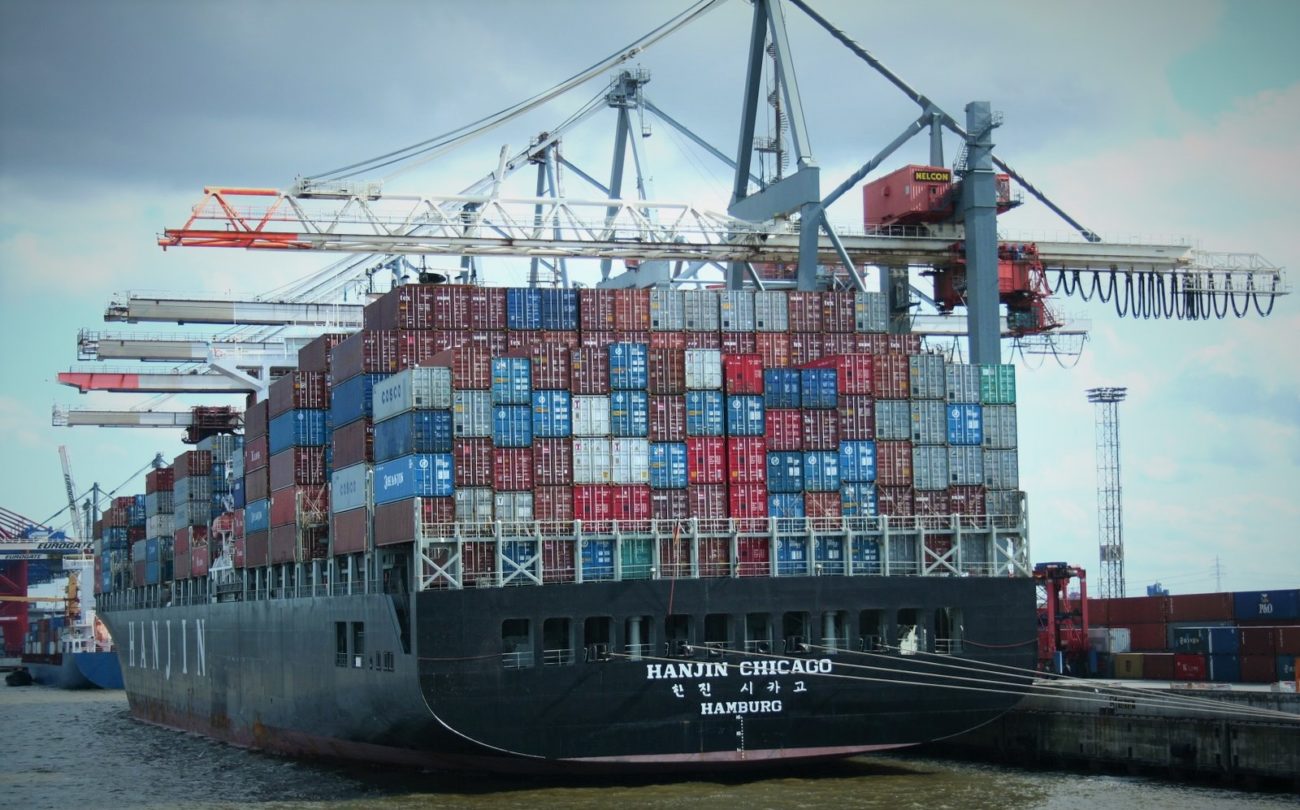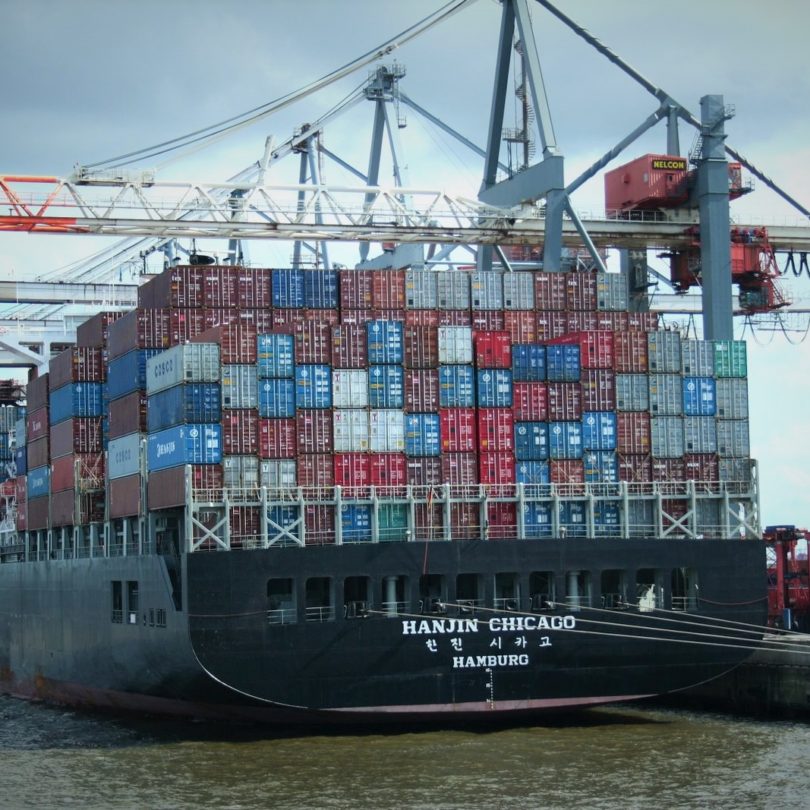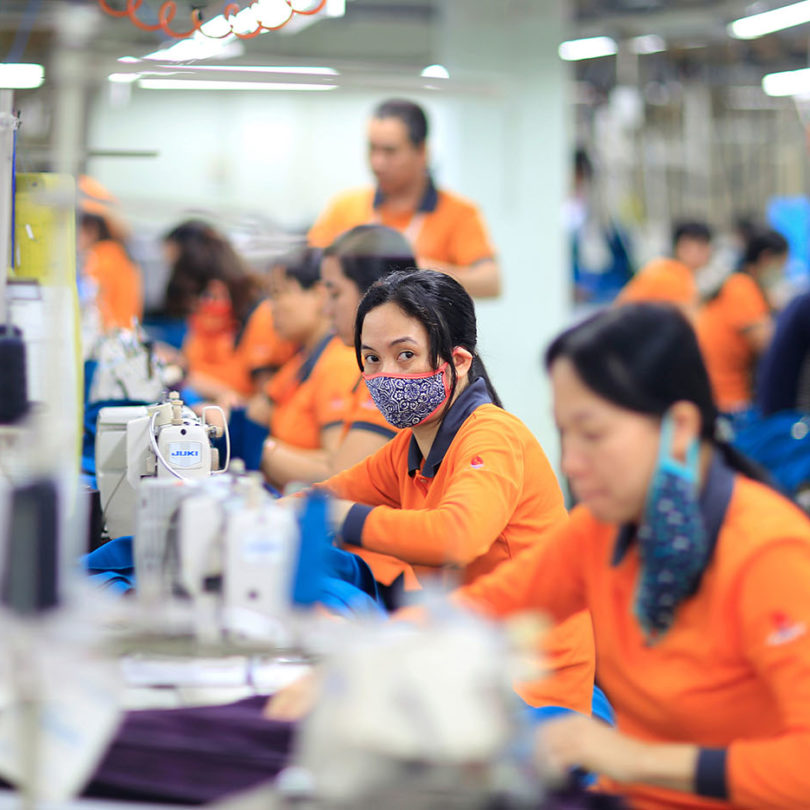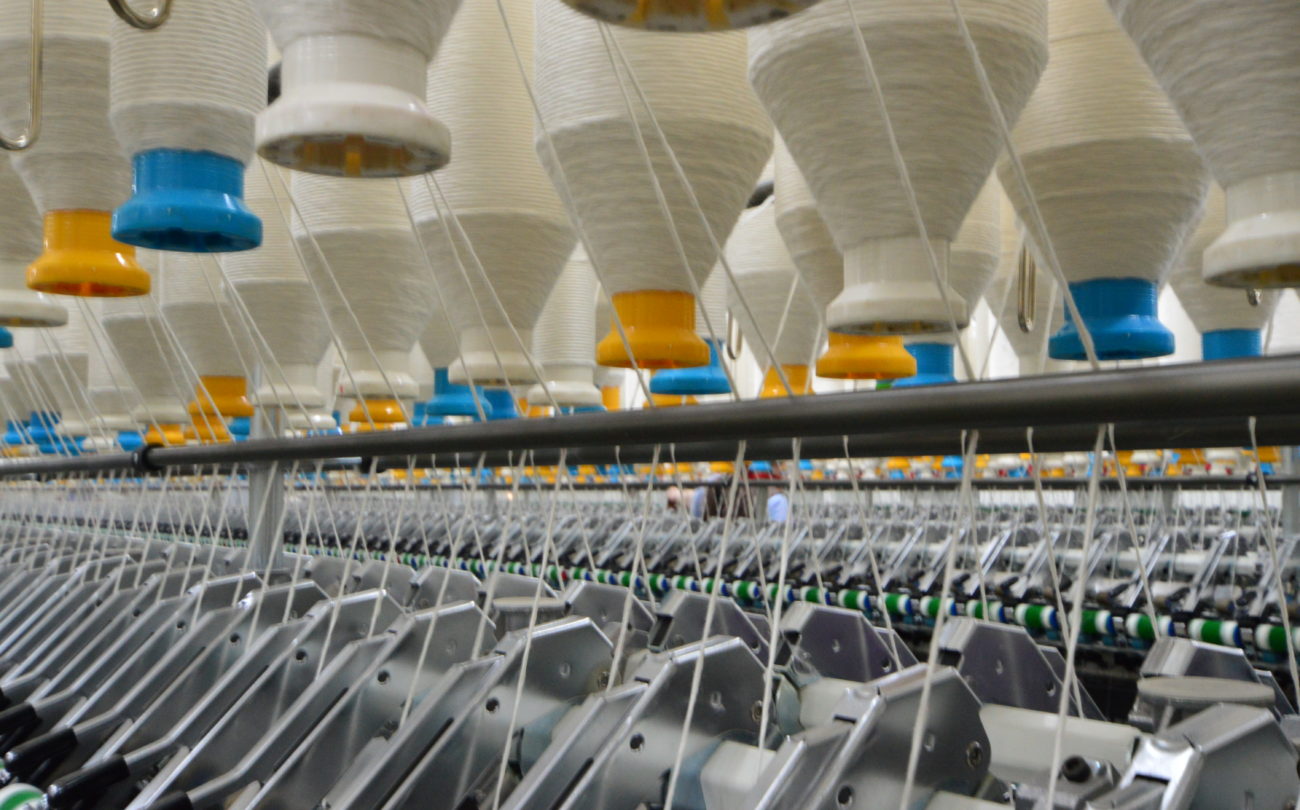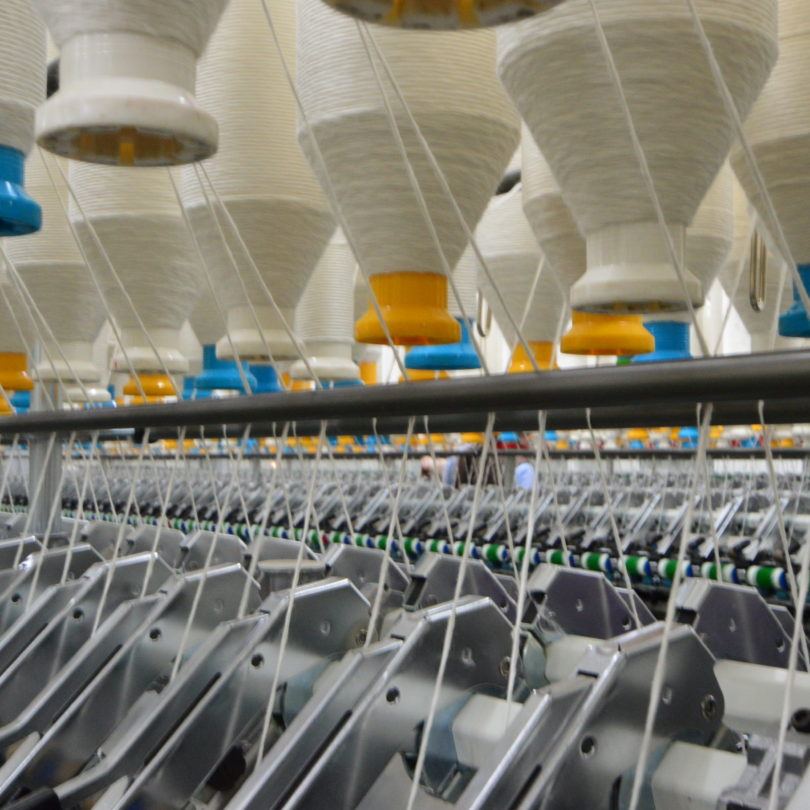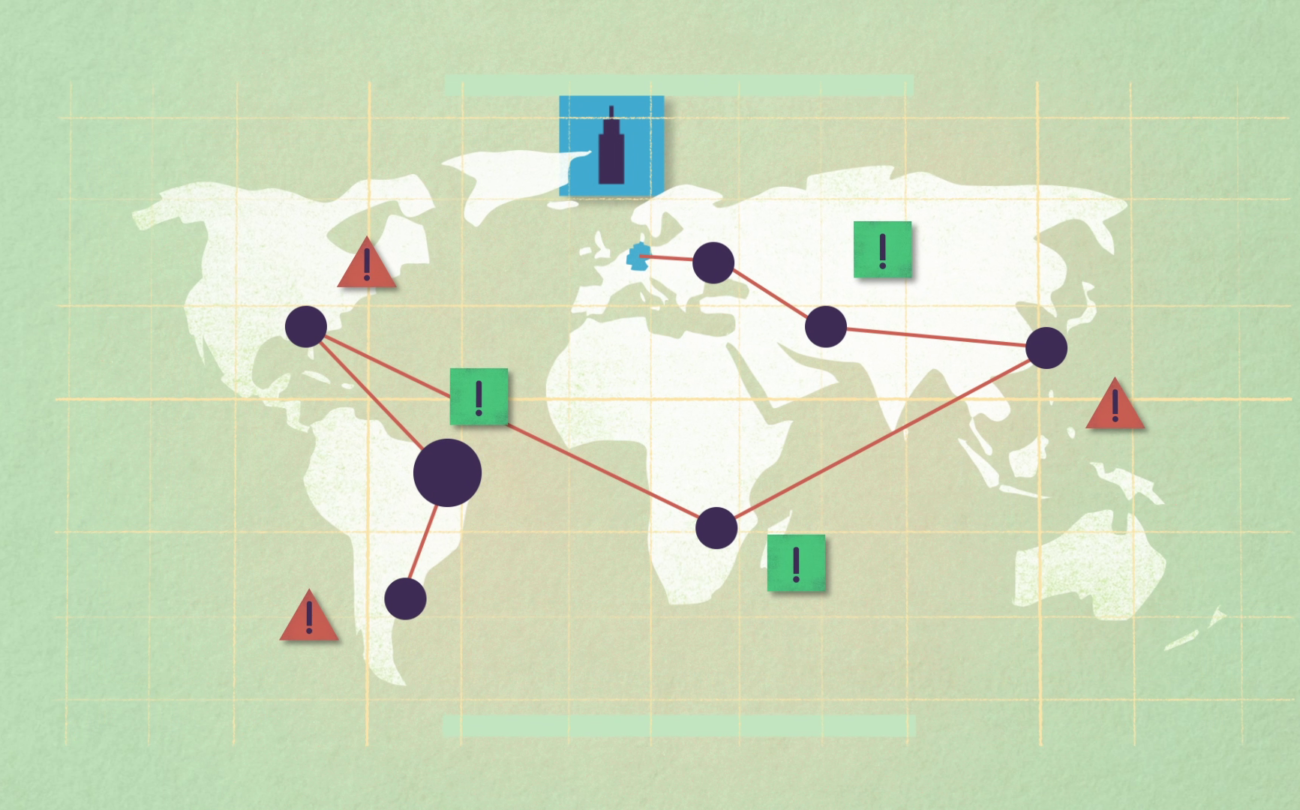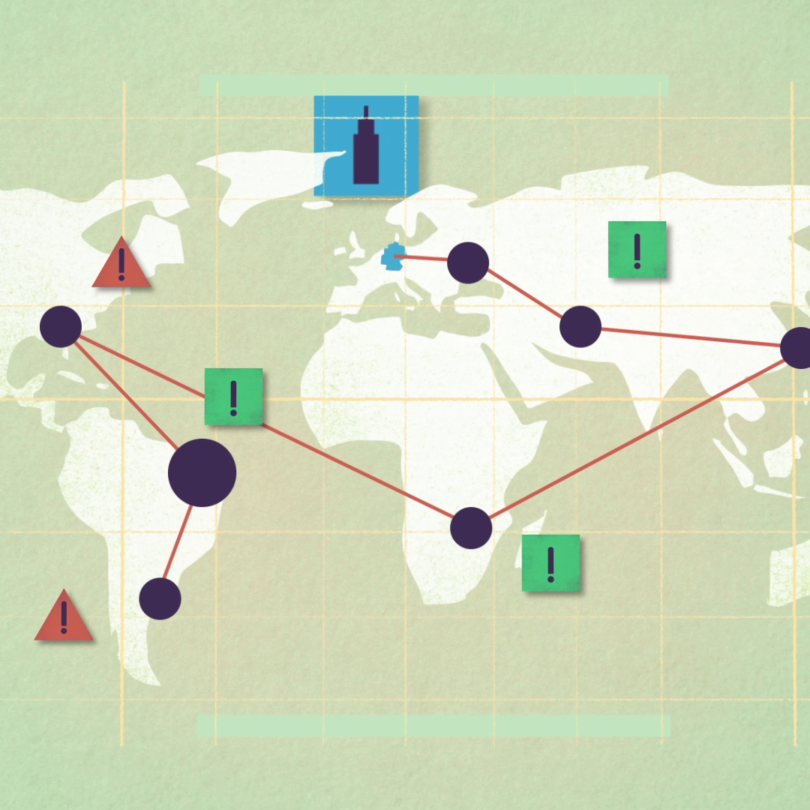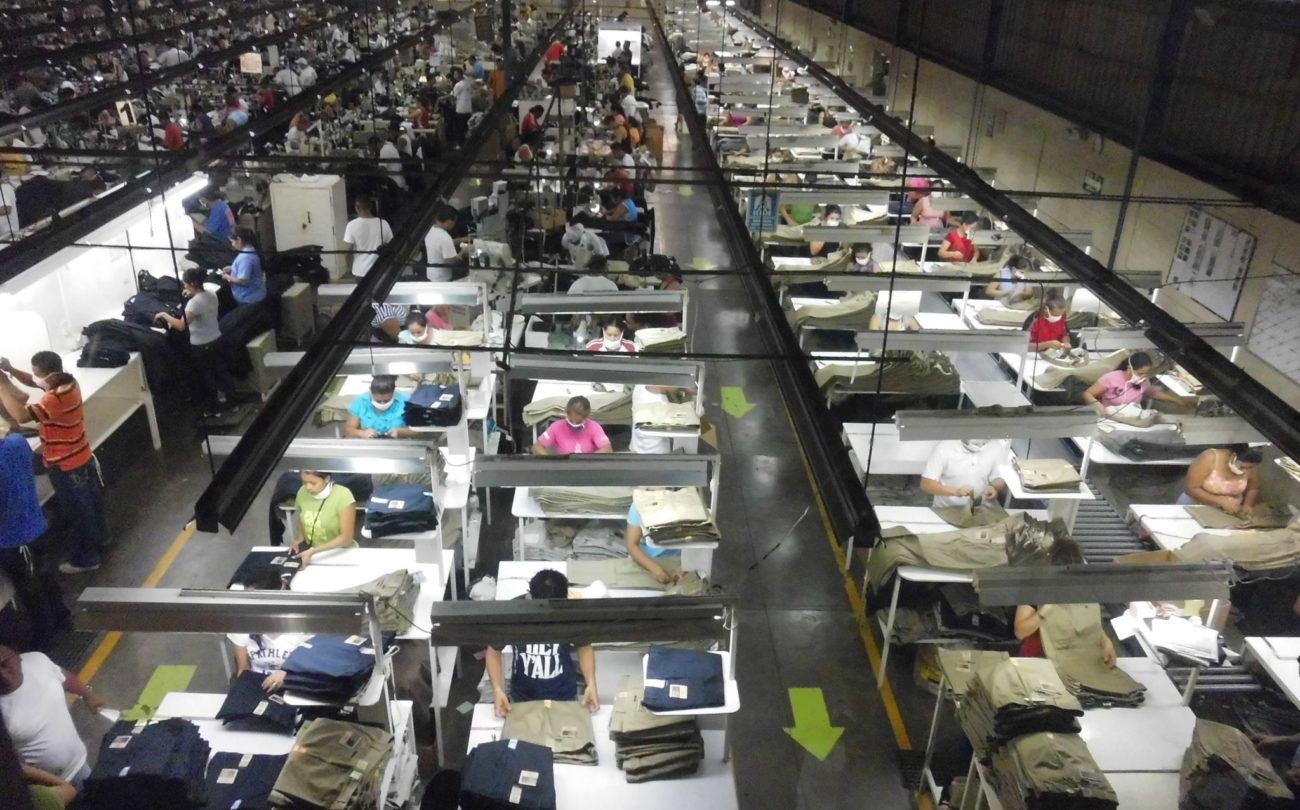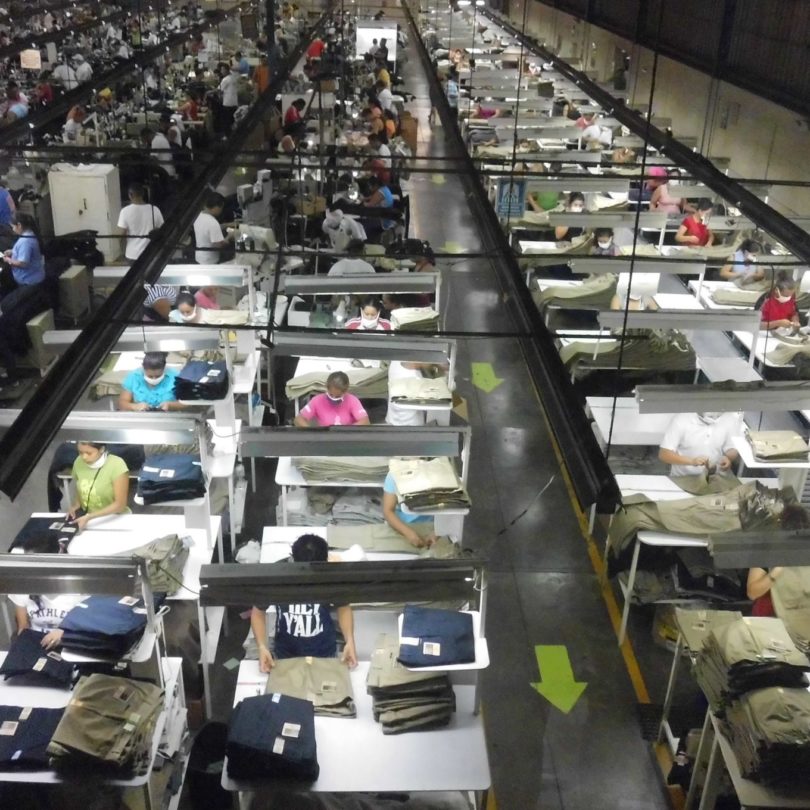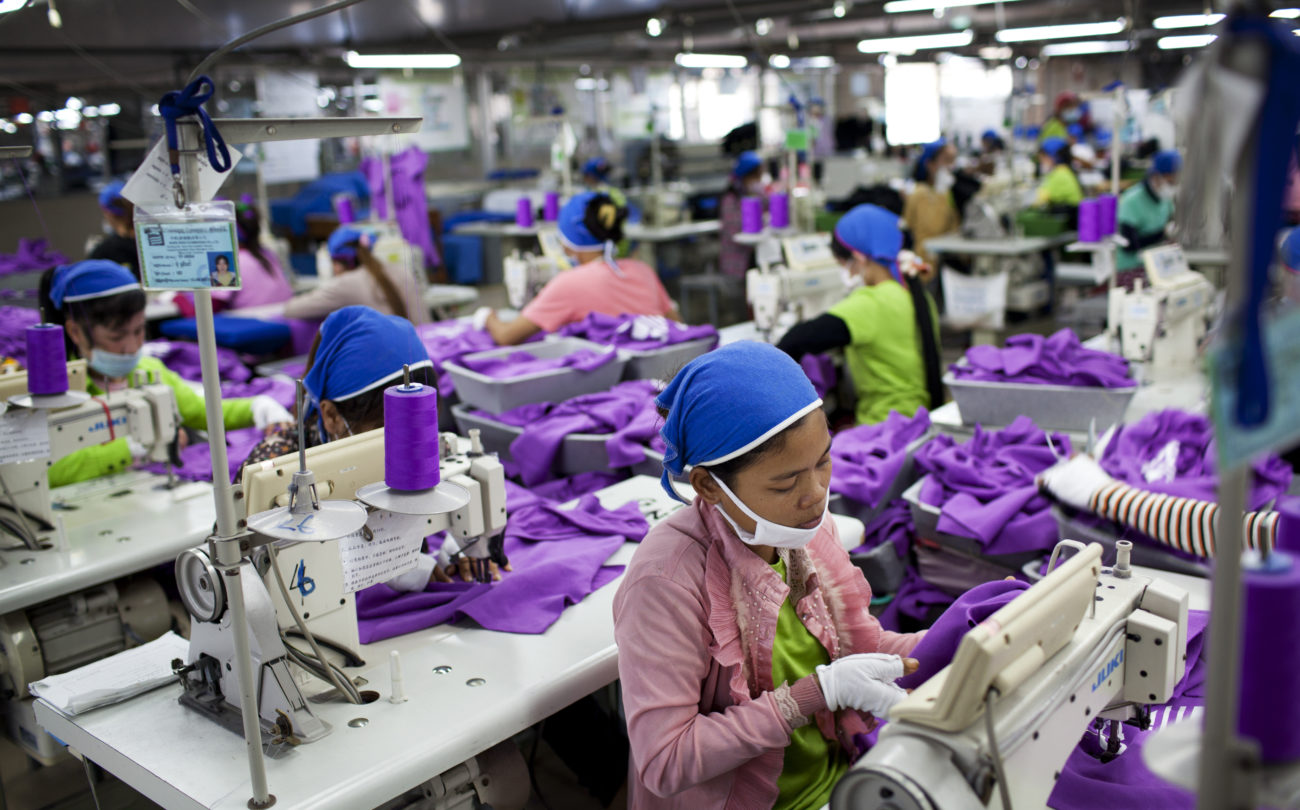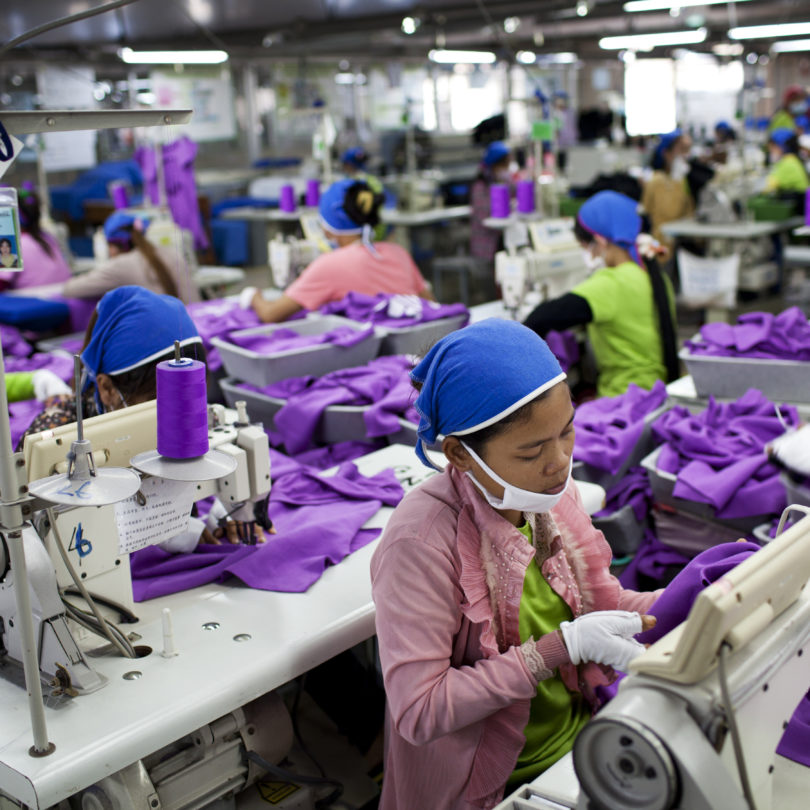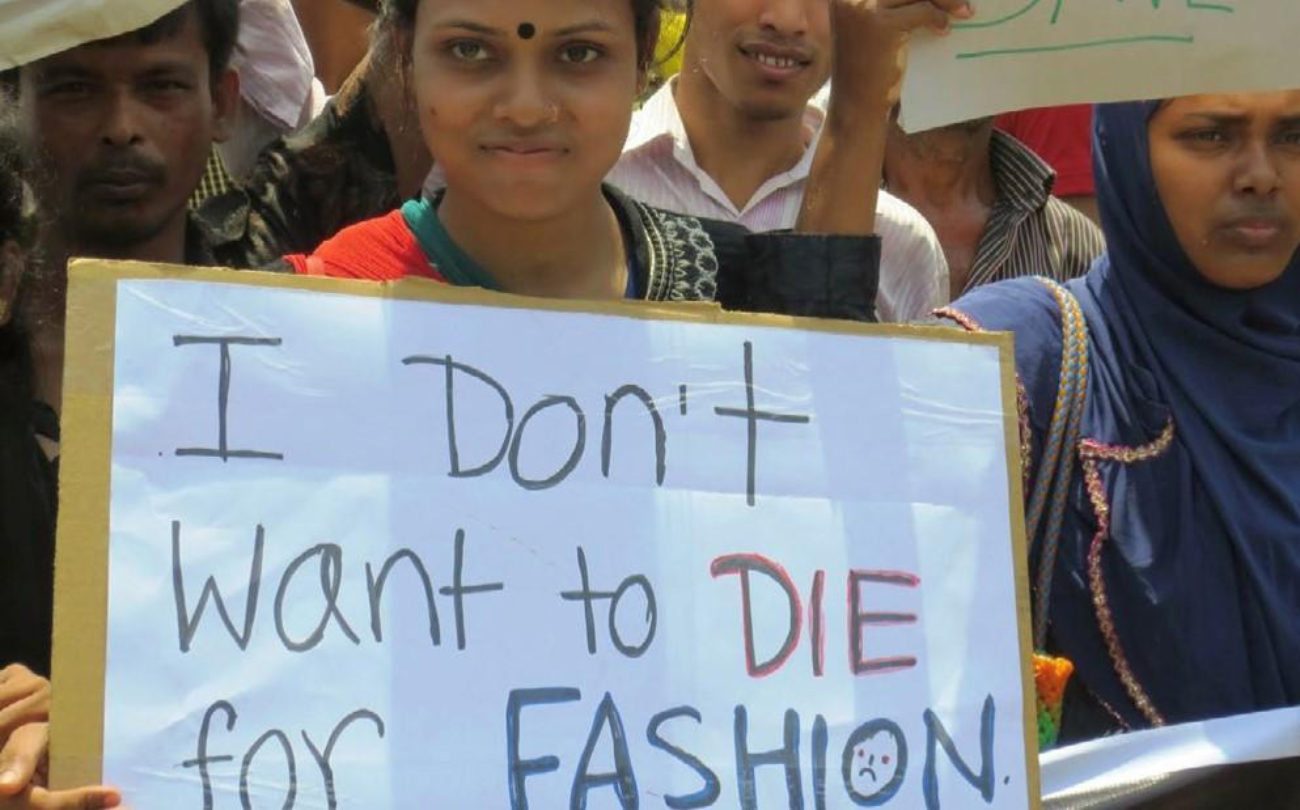Where is the climate chancellor? How Germany is stifling climate protection in the EU Supply Chain Act
The deliberations on the EU Supply Chain Act are now entering a decisive phase. One of the questions on the agenda is: what climate obligations should companies have in the future? The German government is attempting to let companies off the hook, instead of pushing for more climate protection.
1 December 2023 – The critical trilogue meetings are imminent, where the three legislative bodies of the EU, the Council, the Parliament and the Commission, will negotiate the final text of the EU Supply Chain Act. The goal: better protection of human rights and the climate within the supply chains of European companies. One hotly debated question is whether companies in the future will need to ensure that their business practices are consistent with the climate target of 1.5 degrees. Will it be enough for them to make pledges and promises – or will their compliance also need to be monitored?
The German government’s position is “yes” on climate promises, but “no” on monitoring. An additional obligation to implement climate targets, according to the German government, would result in companies not setting ambitious targets in the first place. The German government even rejected the EU Commission’s proposal to at least link the remuneration of companies’ executive leadership with their climate action plans. If the self-proclaimed “Chancellor for Climate Protection” Olaf Scholz and his Climate Protection Minister Robert Habeck have their way, there will be no implementation incentives for companies. The EU Supply Chain Act is thus in danger of becoming ineffective in this area.
Get involved now and write an email
All of this sounded very different in the coalition agreement, where the German government promised to advocate for an effective supply chain law in Europe. It’s time we reminded them of this promise. Write to Chancellor Olaf Scholz now, and tell him what you expect from him: commitment to a strong EU supply chain law, which includes explicit climate obligations for companies!
Why are climate obligations for companies so important?
More than 70 percent of all greenhouse gas emissions since 1988 have been caused by just 100 companies. One reason behind this is decades of inadequate climate legislation. And even in 2023, fossil fuel expansion still seems to be profitable for many companies. Current research indicates that European companies are involved in at least one fourth of the world’s most climate-damaging ventures (so-called “carbon bombs”). There are still too few companies that have credible climate strategies – and even if they do, the question of their appropriate implementation is a completely different matter.
Climate scientists agree that we need to reduce global greenhouse gas emissions by half by 2030 in order to achieve the 1.5 degree target of the Paris Agreement.
Now is the time to force companies to protect the climate!
In the face of the climate crisis, the EU must not miss the opportunity to finally impose climate obligations on companies. The EU supply chain law must therefore:
1) include a clear climate-related due diligence obligation for companies;
2) require all companies covered by the law to draw up suitable climate action plans for a business model in alignment with the 1.5 degree target – and then implement these plans;
3) require EU member state regulators to monitor companies’ climate action plans and their implementation;
4) incorporate the Paris Agreement as an important climate protection instrument.
EU Parliament calls for stronger climate obligations
The EU Commission, the Council and the European Parliament have different conceptions of what the climate obligations for companies should look like. Only the European Parliament’s proposal does justice to the urgency of the climate crisis and adequately addresses the responsibility of companies.
The Parliament wants to have binding obligations imposed on companies to reduce their greenhouse gas emissions. In addition, they would be required to present a plan for how to bring their business models in line with the 1.5 degree target. In principle, this also entails that they have to ensure the reduction of emissions in their supply chains. “Where appropriate,” they should set themselves absolute reduction targets, instead of offsetting emissions elsewhere. As such, the proposal also contains caveats and limitations – and is therefore not ideal from a climate policy standpoint.
Council and Commission in favor of weak climate protection
The variant proposed by the Council, on the other hand, would be entirely ineffective. In this version, companies would only be required to present a climate plan, but would explicitly not be obliged to implement this plan. The EU Commission’s proposal takes a similar line: it also does not include any implementation obligation and certainly has no climate-related due diligence obligation. In contrast to the Council, however, the Commission at least wants to link the remuneration of company management to whether or not the company has implemented its own climate plan.
The Climate Minister must seize this opportunity
The EU Supply Chain Act could become a milestone for European climate protection. But it will only work if it actually obligates companies to take measures to protect the climate. The EU must seize this opportunity now! In addition, the German government must finally give up its protective stance towards industry. Send an email to Federal Chancellor Olaf Scholz now! Because company climate protection plans that no one has to implement would amount to nothing more than an invitation for greenwashing.



